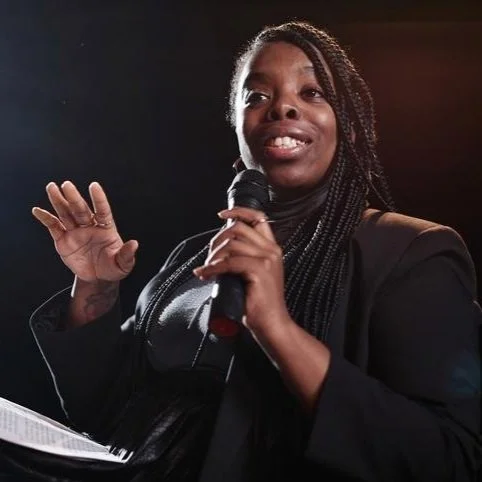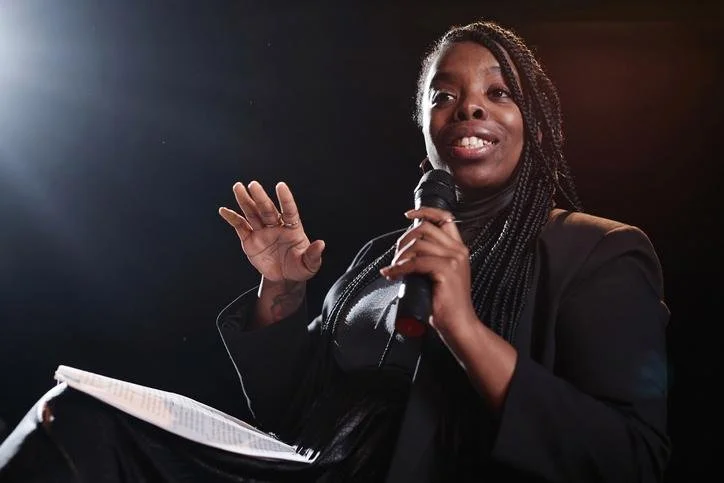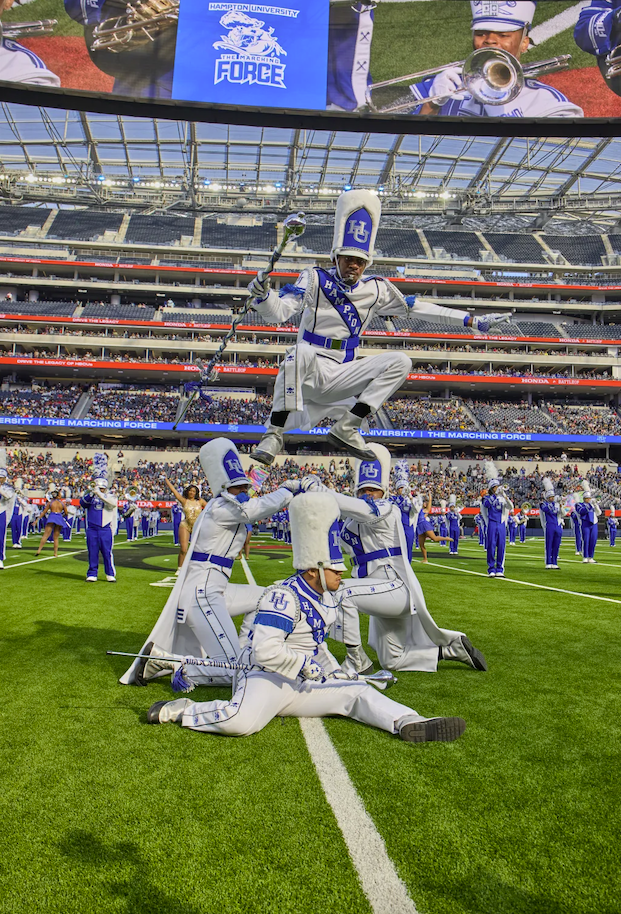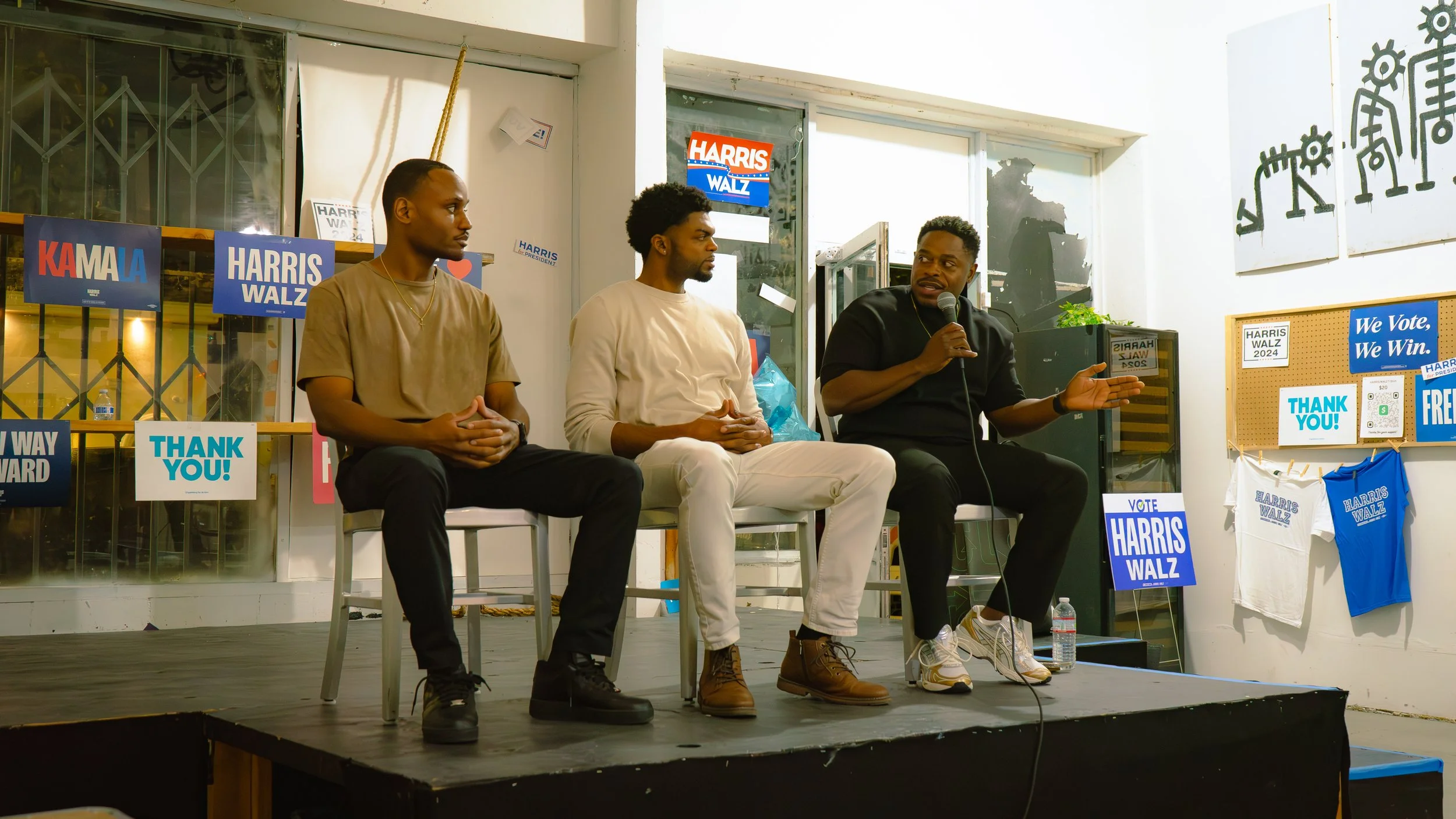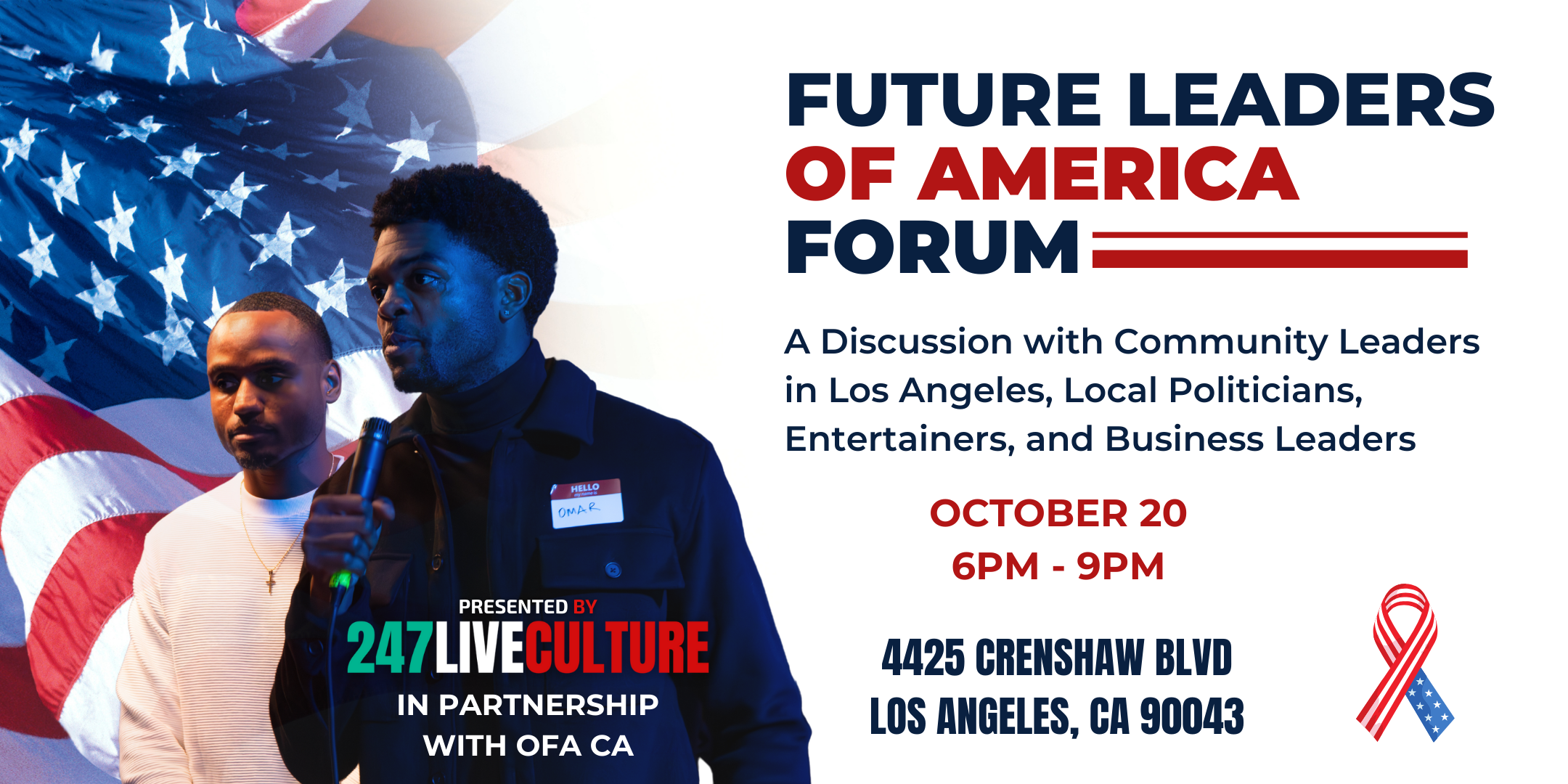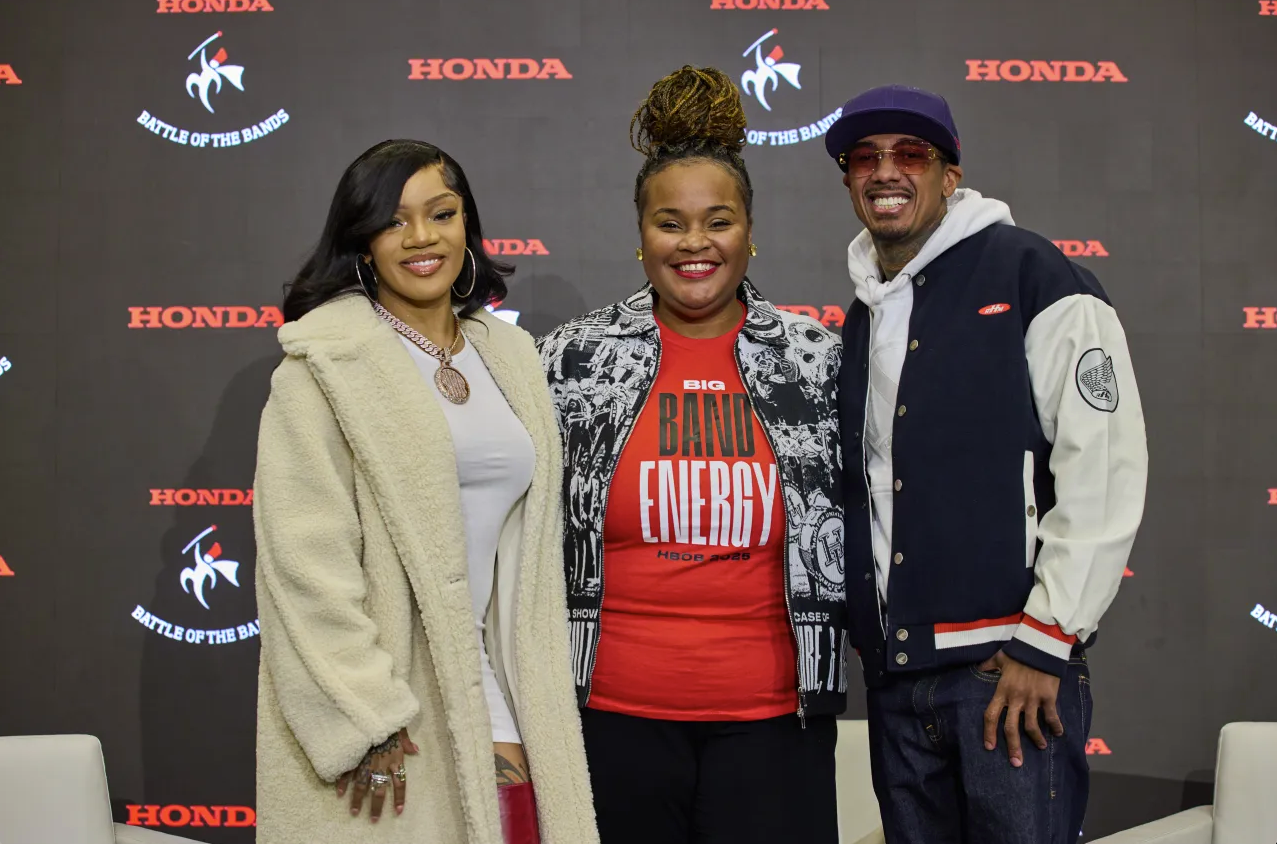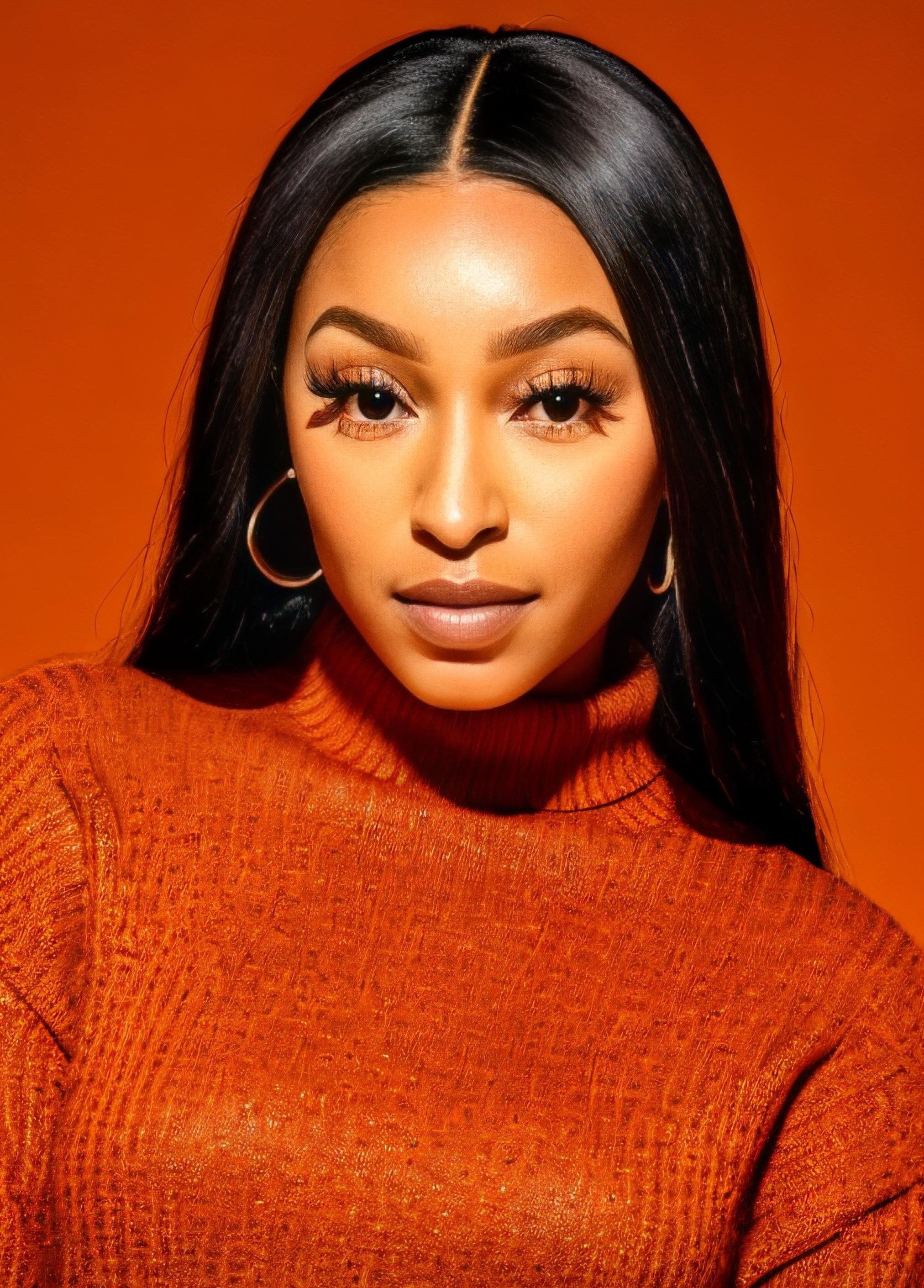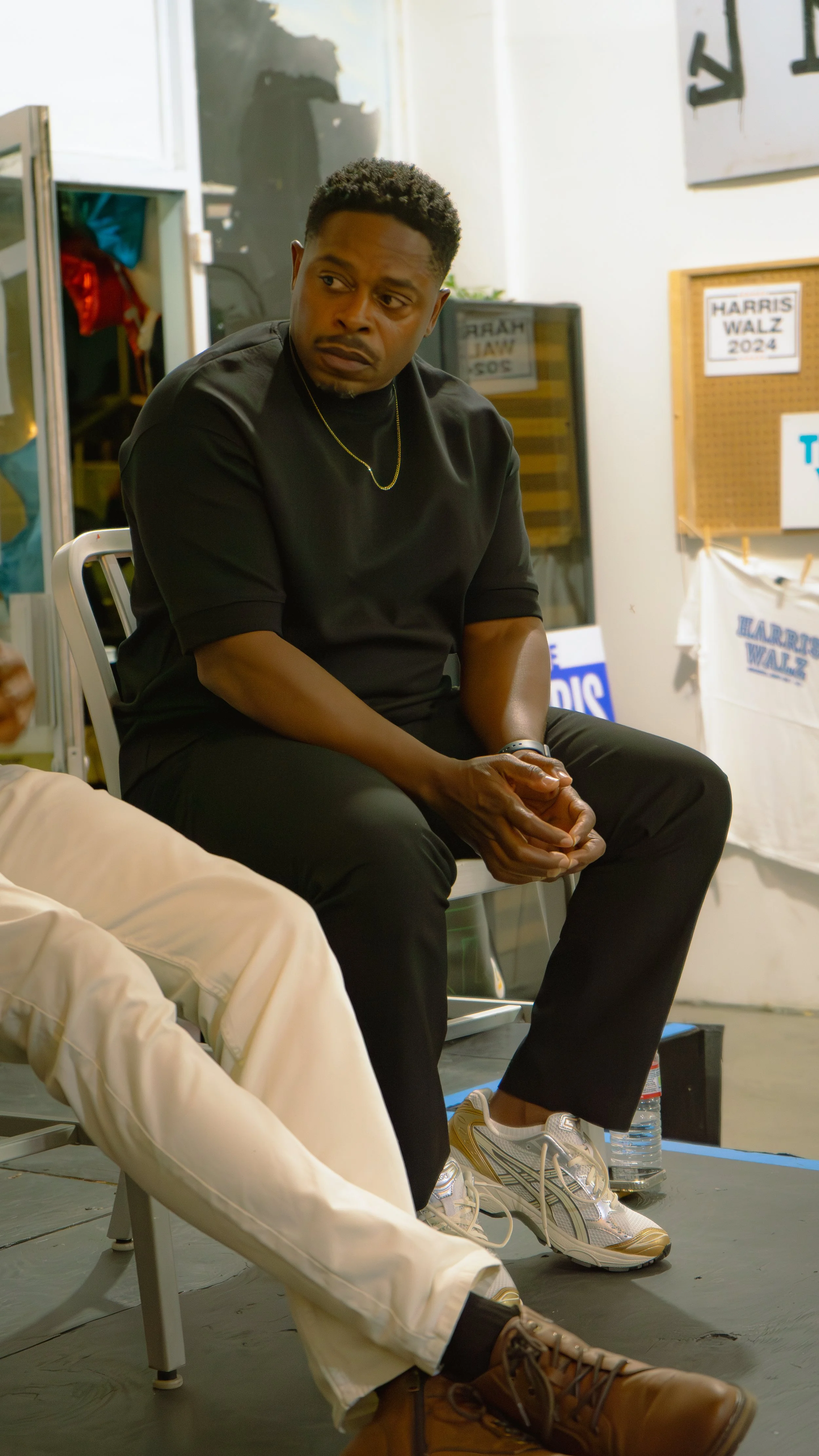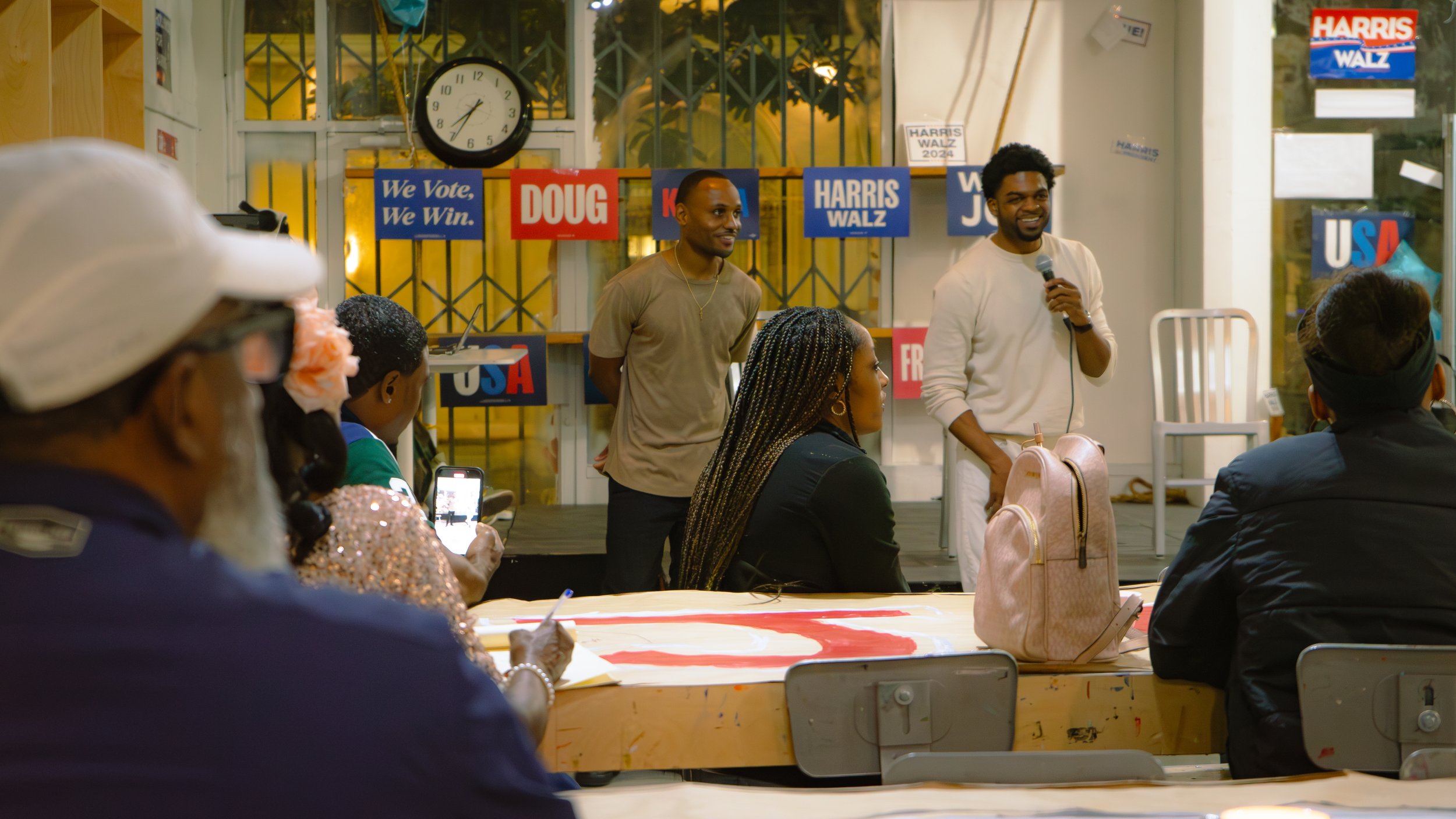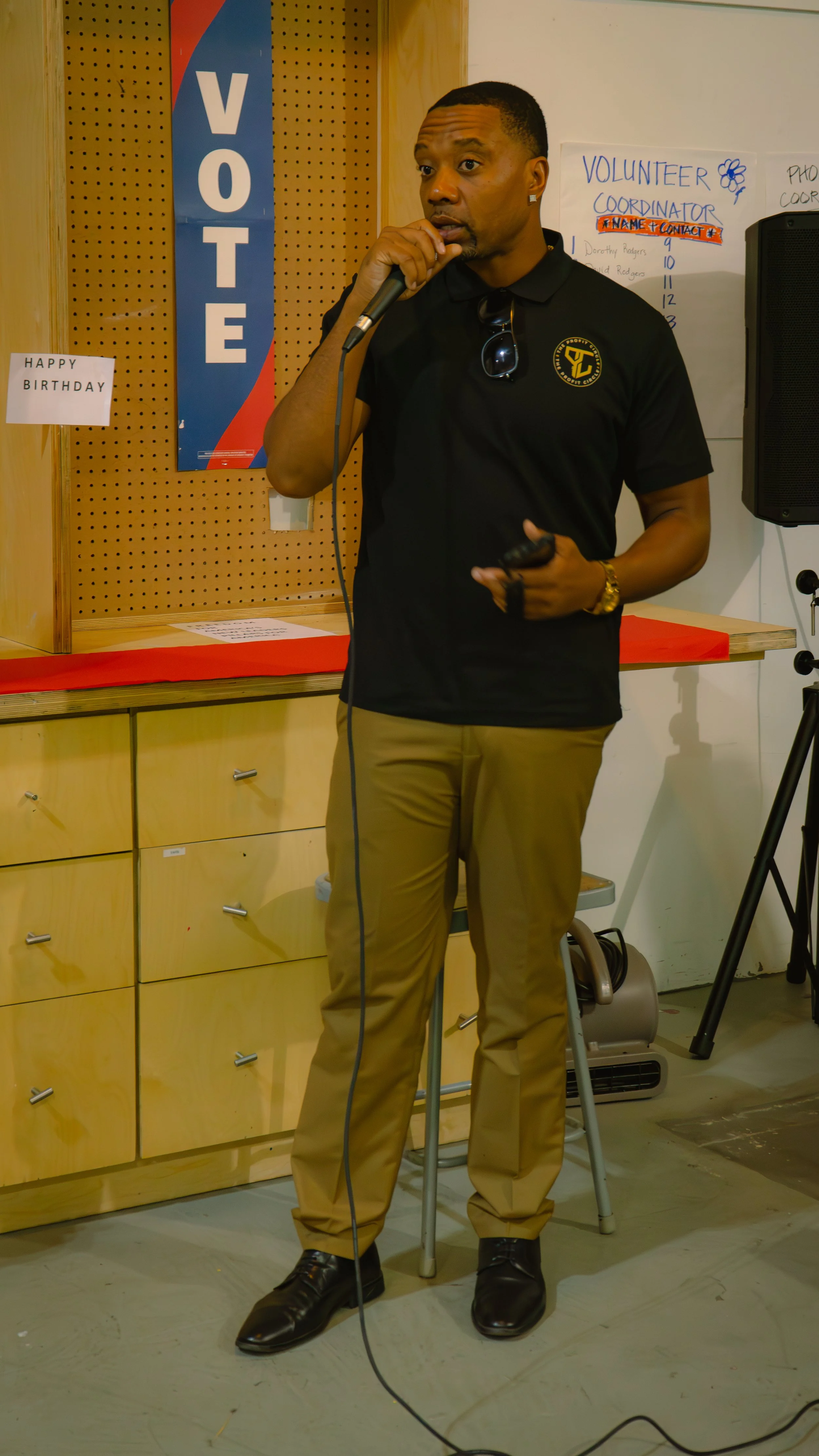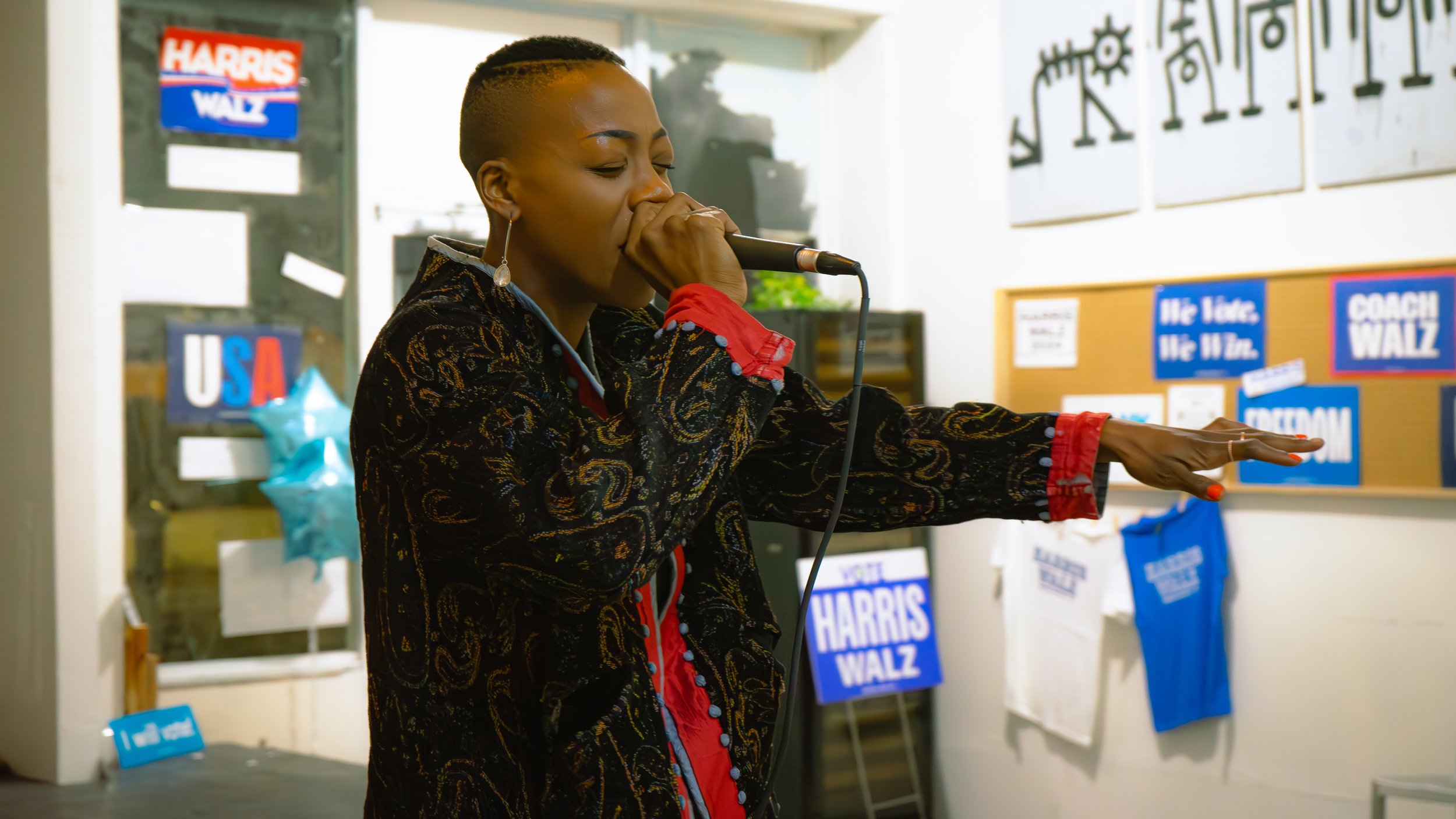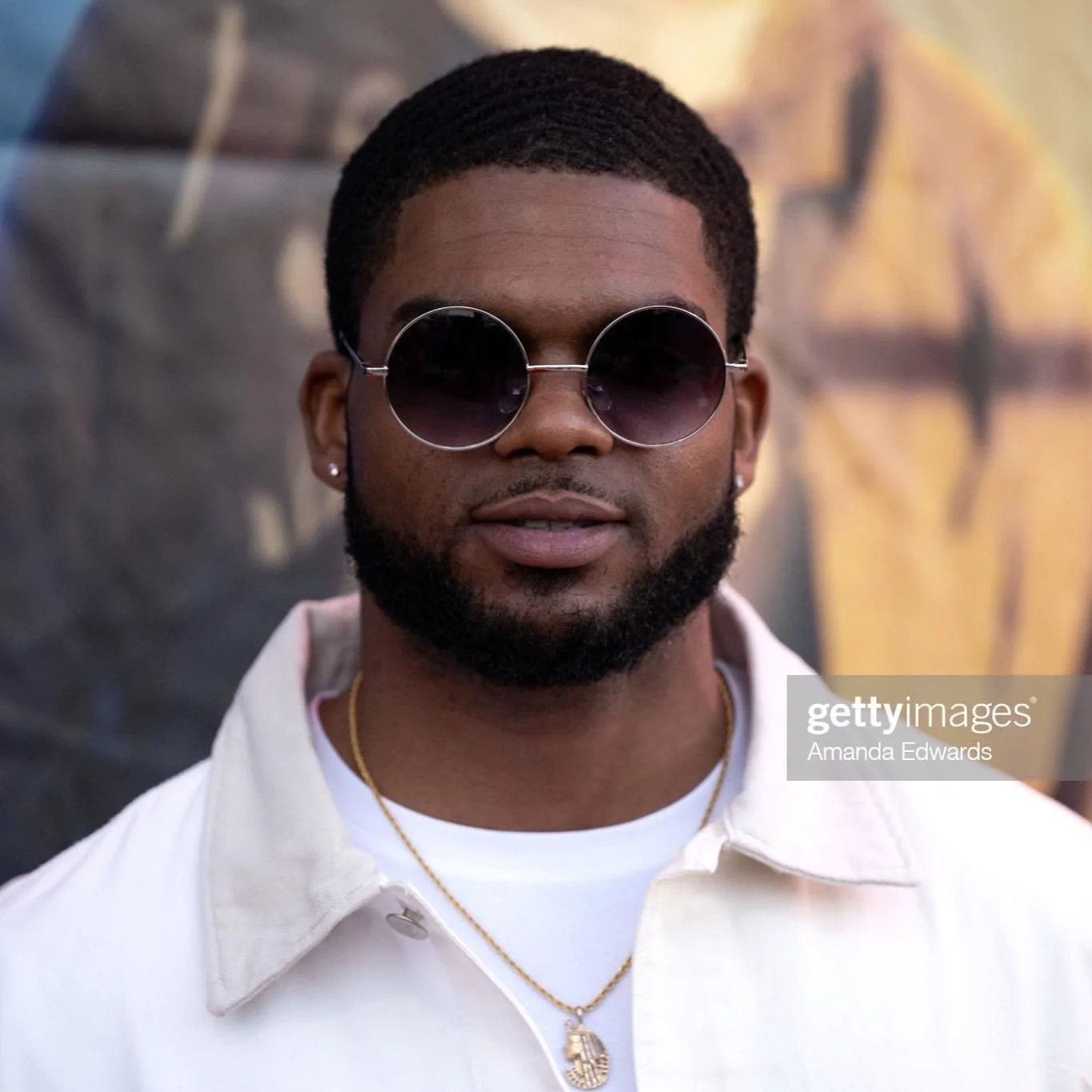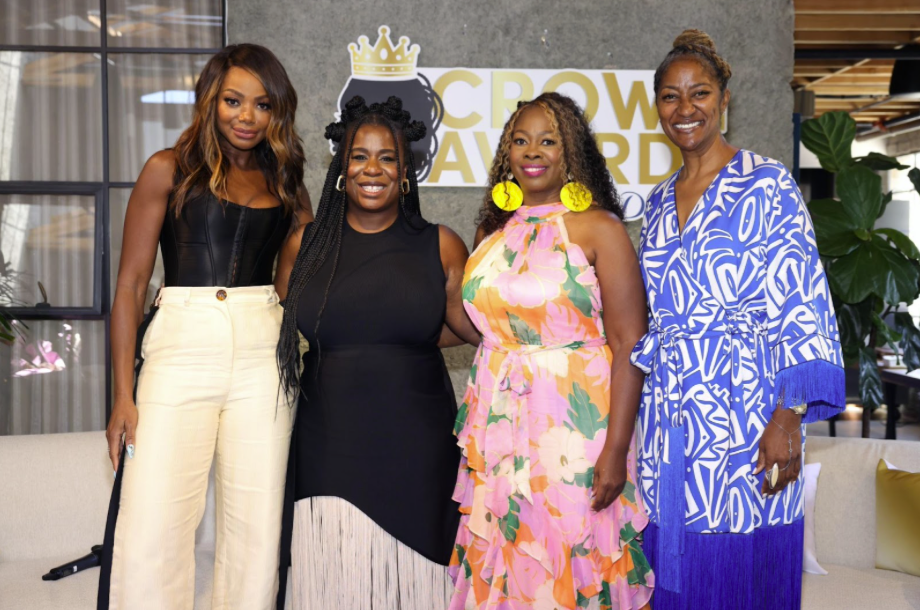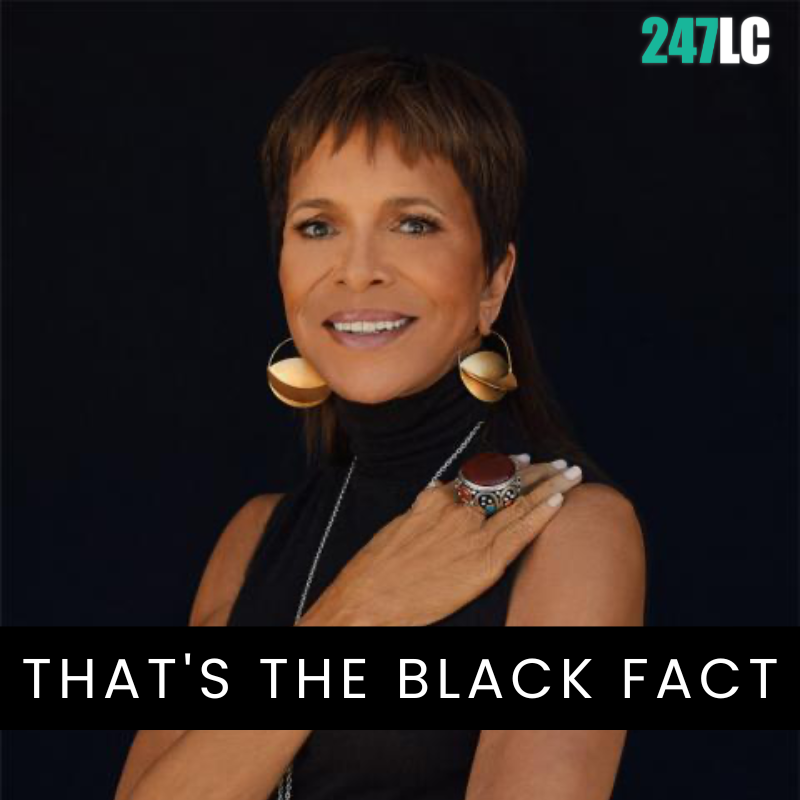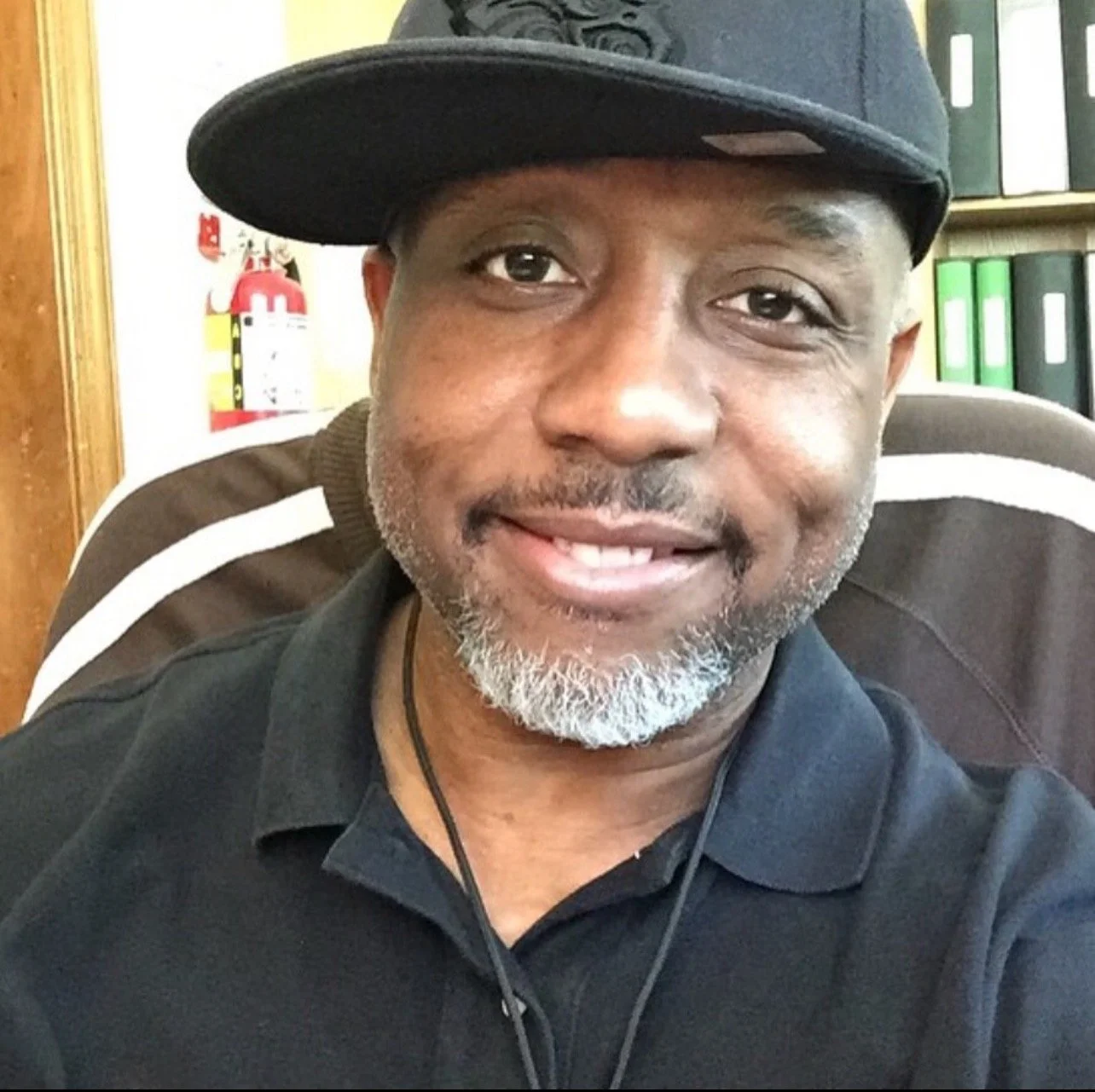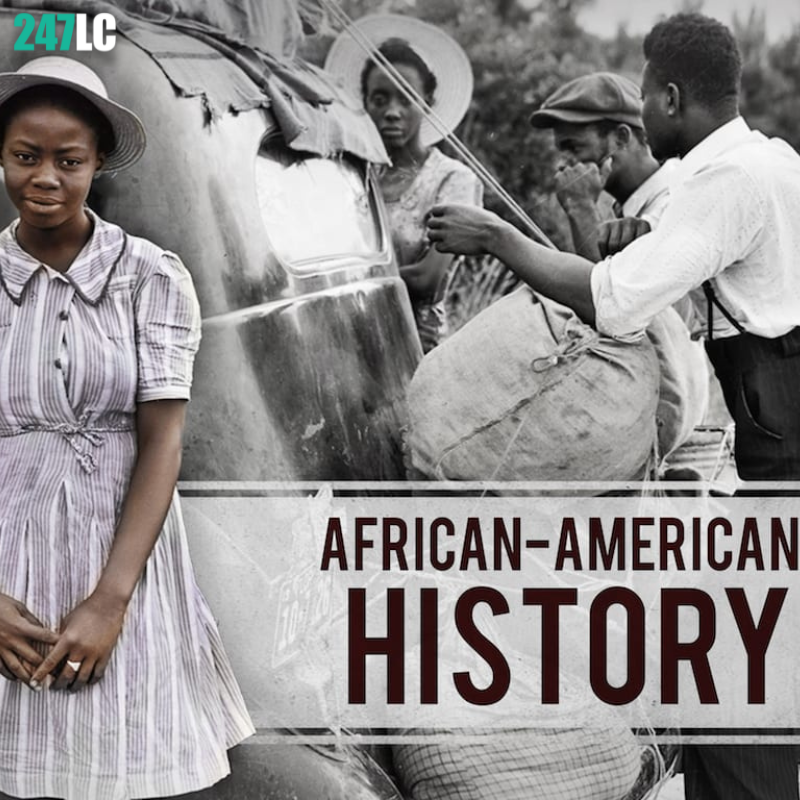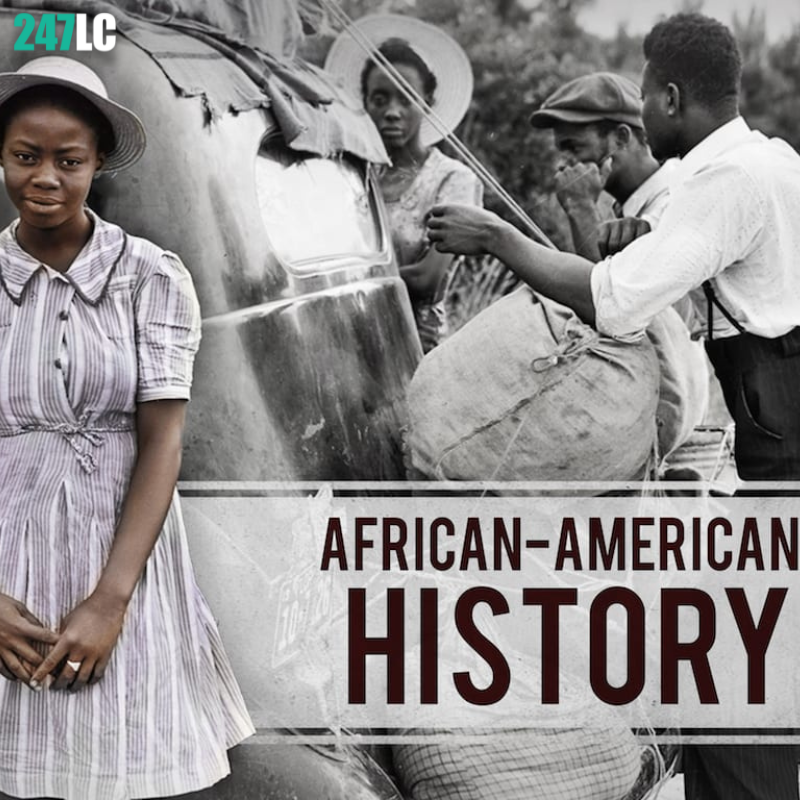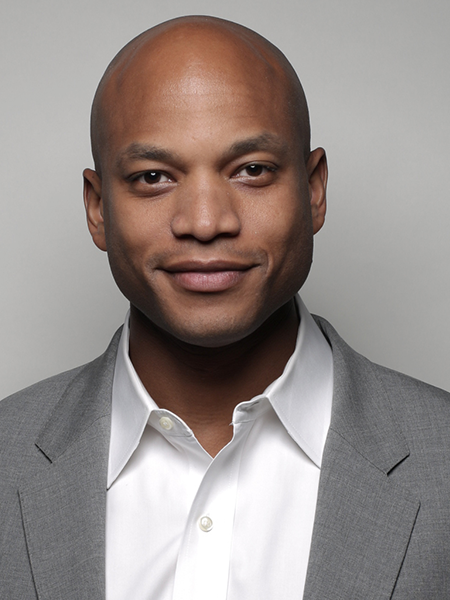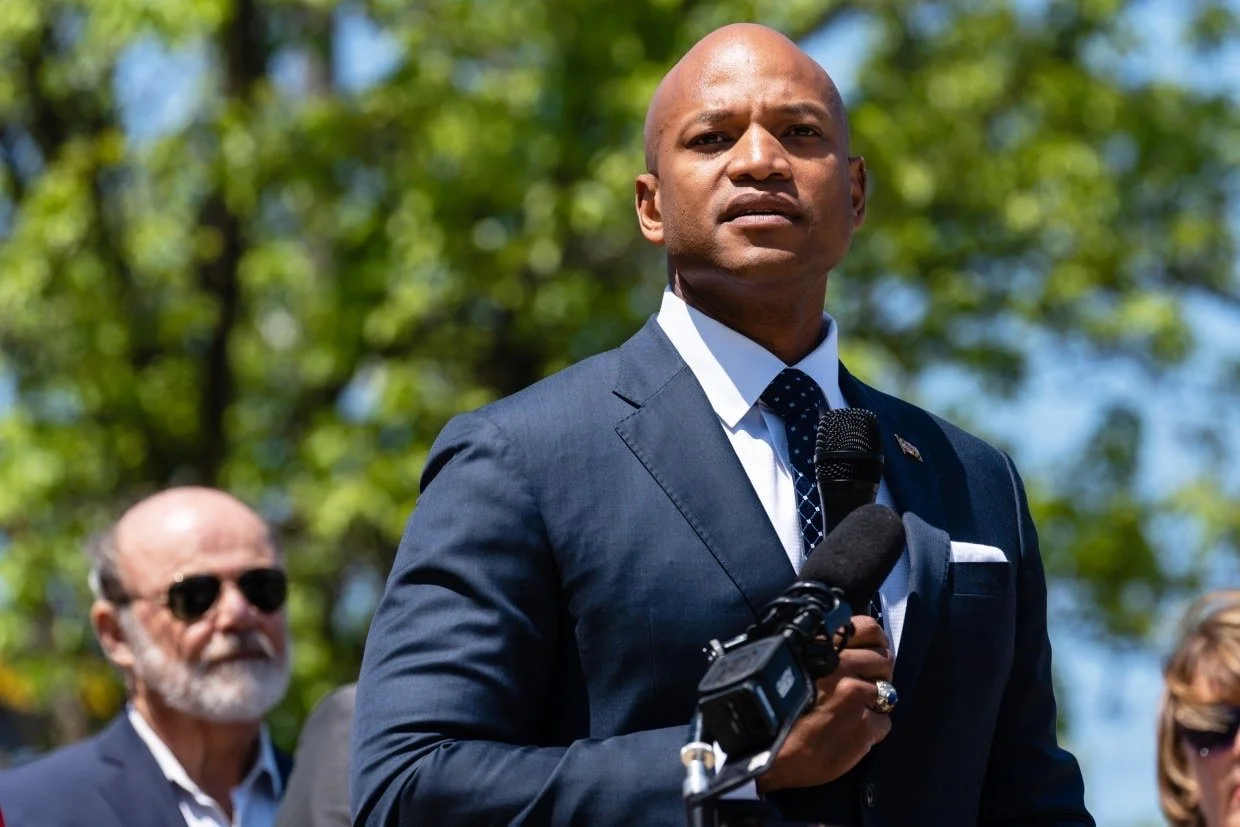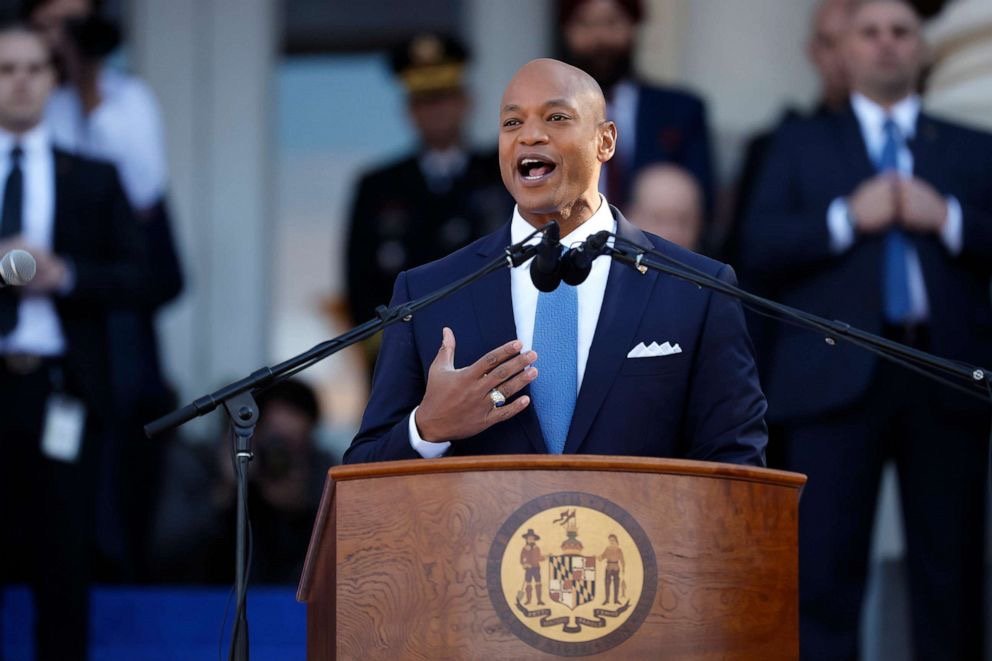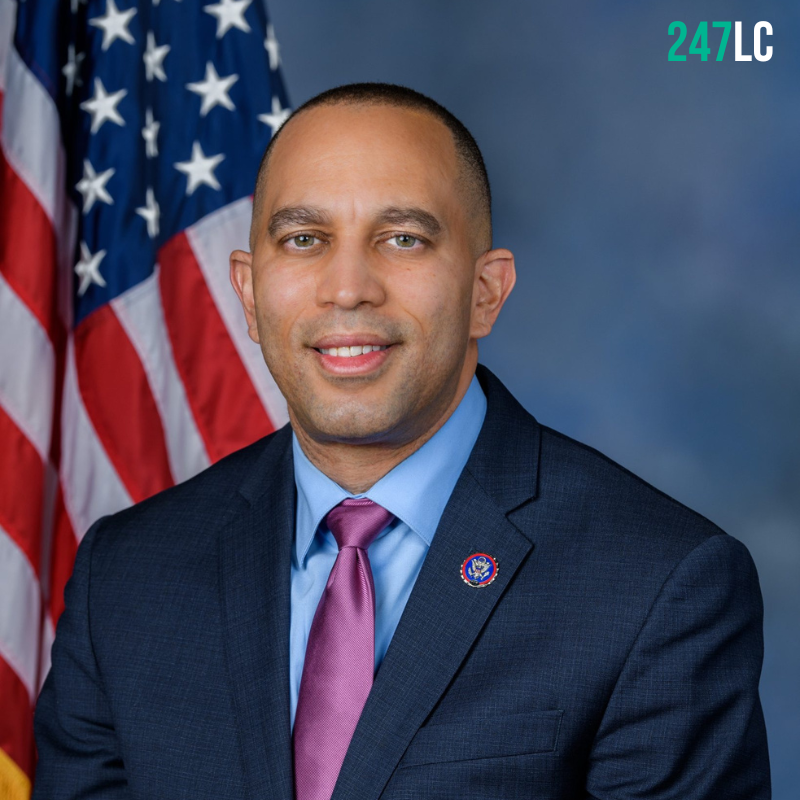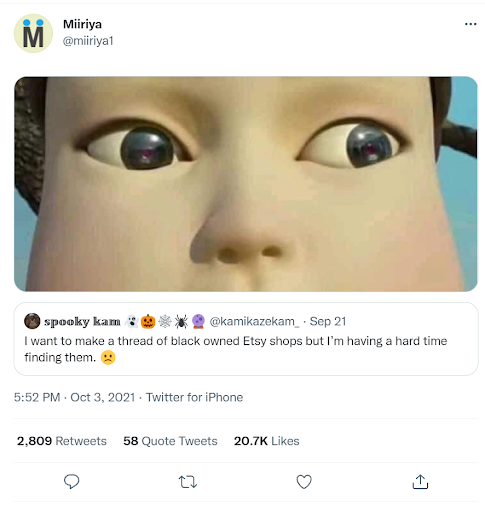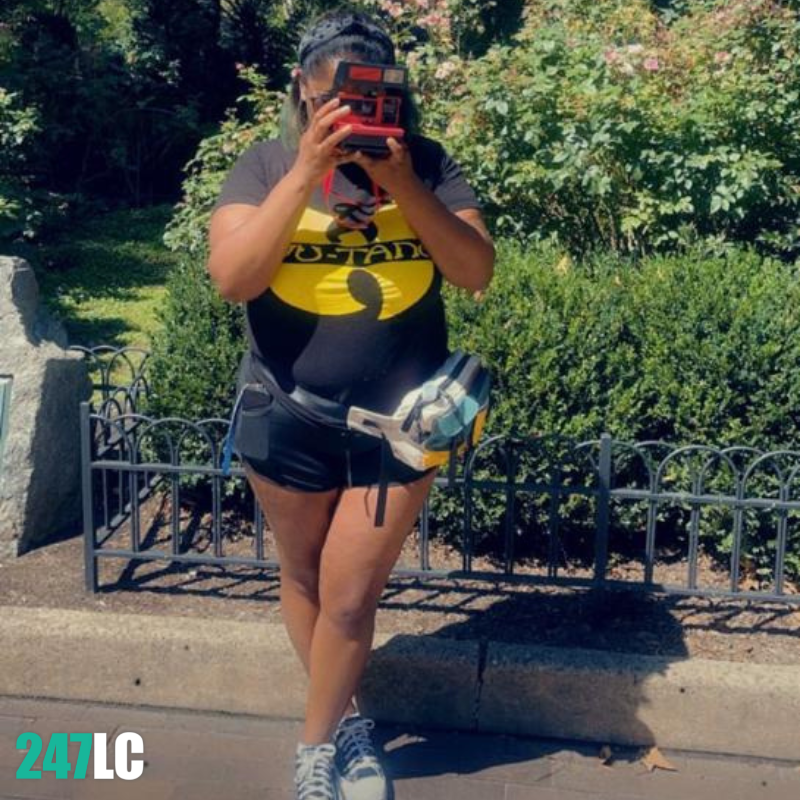The Power of Storytelling: A Black Experience
Black storytelling is a powerful act of survival, resistance, and cultural preservation, ensuring that Black history, voices, and futures are reclaimed, honored, and written on our own terms. We discuss it here!
Photo cred: SeventyFour via iStockPhoto.com
By: Jamila Gomez
Storytelling has always been the heartbeat of Black existence. Before we wrote, we spoke. Before we recorded, we remembered. And even in the face of forced silence, we sang. Our stories—whether whispered between kinfolk in cotton fields, laid down in Harlem Renaissance poetry, or coded in the rhythm of a drum—have been the means through which we preserve our history, affirm our humanity, and shape our future.
For Black people, storytelling is not just art—it’s survival. It’s resistance. It’s power.
Memory as Liberation
Our ancestors understood that history, when controlled by the oppressor, becomes a weapon. It erases, distorts, and rewrites until our truths are buried beneath someone else’s lies. But storytelling has always been our tool for reclamation.
The griots of West Africa held entire dynasties in their memories, passing down the names, victories, and struggles of our people long before European conquest. This tradition lived on when we were stolen from our lands—through folktales like Br’er Rabbit, subversive spirituals, and oral histories that ensured our ancestors were never truly lost.
Even today, Black storytelling pushes back against historical erasure. From writers like Toni Morrison, who resurrects the ghosts of our past, to filmmakers like Ava DuVernay, who refuses to let history be sanitized, we use our stories to carve our truths into the fabric of the world.
The Power of Our Voices
For centuries, Black people were denied the right to tell their own stories. Enslaved people were forbidden from reading and writing, and when they spoke, their words were dismissed or criminalized. Yet, our voices persisted.
Frederick Douglass wielded his autobiography as a weapon against slavery. Zora Neale Hurston captured the raw beauty of Black Southern life. James Baldwin’s words still slice through America’s conscience like a hot knife.
But storytelling is not just for the published and the acclaimed. Every grandmother who tells the family’s migration story at the dinner table, every barbershop debate that transforms into a history lesson, every spoken-word poet who pours their soul onto a mic—these are all acts of cultural preservation. Every time a Black person tells their truth, they disrupt a world that was built to silence them.
The Future Written by Us
Black storytelling is not just about looking back; it’s about shaping the future. When we tell our own stories, we define ourselves outside of the white gaze. We remind the world—and ourselves—that we are not just trauma, not just struggle, not just footnotes in someone else’s history book.
We are joy. We are love. We are creators of worlds, builders of dreams.
This is why hip-hop became a global phenomenon—because it was the raw, unfiltered voice of a people who refused to be ignored. This is why Afrofuturism is so powerful—it dares to imagine a world where Black people are free beyond the constraints of history. This is why we must keep telling our stories—because no one else can tell them the way we do.
So whether it’s through literature, music, film, or simple conversation, keep speaking. Keep writing. Keep remembering. Because every Black story told is a world reclaimed. And when we control our narratives, we control our destiny.
Our stories are our power. Let’s never let them go.
YOU MAY ALSO BE INTERESTED IN:
SHARE TO SOCIAL MEDIA
HBCU Marching Bands Take Over SoFi Stadium for Historic Honda Battle of the Bands 2025
HBCU marching bands made history at SoFi Stadium with an electrifying Honda Battle of the Bands 2025, celebrating Black excellence, culture, and musical legacy with show-stopping performances. We Discuss It Here!
Feb. 1, 2025 - Hampton University Marching FORCE performing SoFi Stadium at the 2025 Honda Of The Bands in Ingelwood, CA.
The Honda Battle of the Bands (HBOB) just made history, and SoFi Stadium will never be the same. Six powerhouse HBCU marching bands brought the house down in a first-of-its-kind West Coast takeover, turning up the energy and setting the perfect tone for Black History Month. The 19th annual showcase wasn’t just a performance—it was a cultural moment, a celebration of the rhythm, resilience, and legacy of HBCUs.
Nick Cannon held it down as host, keeping the crowd hyped, while GRAMMY-nominated rap star GloRilla had the stadium rocking with a performance that had folks out of their seats.
The Honda Battle of the Bands (HBOB) press conference at SoFi Stadium on February 1, 2025, brought together GRAMMY-nominated artist GloRilla, HBOB Project Lead at American Honda Jasmine Cockfield, and multi-talented entertainer and entrepreneur Nick Cannon for an exciting kickoff event.
The Bands That Shut It Down:
● Alabama A&M University | Marching Maroon & White Band
● Alabama State University | Mighty Marching Hornets
● Hampton University | The Marching Force
● North Carolina A&T State University | The Blue and Gold Marching Machine ● Southern University | Human Jukebox
● University of Arkansas at Pine Bluff | Marching Musical Machine of the Mid-South
From the precision footwork to the booming drumlines, these bands brought that undeniable HBCU energy. The dancers, the musicians, the pure showmanship—it was a full-on spectacle that had the crowd roaring from start to finish.
Bigger Than the Bands: Investing in the Culture
Honda didn’t just bring the bands to L.A. they also invested in them. Each participating HBCU walked away with a $50,000 grant to support their music programs and career development. On top of that, Honda dropped a $500,000 grant to the Thurgood Marshall College Fund, keeping the pipeline of HBCU musical talent strong.
Before the showcase even started, Honda linked up with the Black College Expo™ for a massive college and career fair. Over 200 schools, including top HBCUs, showed up, handing out millions in scholarships, on-the-spot acceptances, and career opportunities that will change lives.
Keeping the Momentum Going
Honda’s dedication to HBCUs doesn’t stop here. The Honda Campus All-Star Challenge (HCASC) is coming back in April, giving HBCU students another stage to shine—this time, academically.
From the first drumroll to the final cheer, HBOB 2025 was a moment HBCU culture won’t forget. Tap in at www.hondabattleofthebands.com or hit up HBOB’s social channels to relive the magic.
YOU MAY ALSO BE INTERESTED IN:
SHARE TO SOCIAL MEDIA
Actor Kareem Grimes Headlines Future Leaders of America Forum in Leimert Park
The Future Leaders of America Forum in Leimert Park brought together influential community leaders, entertainers, and activists to discuss social change, community involvement, and the importance of voting! We discuss it here!
Actors Adonis Armstrong, Omar Cook, and Kareem Grimes Speak at the Future Leaders of America Forum in Leimert Park
Credit: Alexa Carbajal
By: Omar Cook
Leimert Park was alive with energy and excitement as the Future Leaders of America Forum kicked off its first-ever event, hosted by 247 Live Culture in partnership with OFA CA for Kamala. With 247 Live Culture CEO Omar Cook and President Adonis Armstrong at the helm, the event brought together young entrepreneurs, community leaders, activists, and entertainers for a night of inspiration, networking, and deep discussions on the future of America.
Actor Kareem Grimes Speaks at the Future Leaders of America Forum in Leimert Park
Credit: Alexa Carbajal
The turnout was fantastic, with the Leimert Park community showing up in full support. Attendees were treated to an evening of connection, starting with a networking session that featured delicious food and a chance to engage with like-minded individuals. The heart of the event, however, was the panel discussion that explored how young people can get more involved in their communities, the importance of voting in the upcoming election, and how entertainers can use their platforms to advocate for social change.
Adonis Armstrong and Omar Cook Speak to the Crowd at the Future Leaders of America Forum in Leimert Park
Credit: Alexa Carbajal
The panel was headlined by "All American" TV star Kareem Grimes, whose heartfelt reflections on his upbringing in Los Angeles resonated with many in the audience. Grimes shared personal stories about his mother, who was a member of the Black Panther Party, and how her legacy of community involvement inspired his own passion for giving back. He emphasized the responsibility of entertainers to use their voice for advocacy, highlighting how powerful it can be to influence social change from a platform of influence.
Doctor Karra Manier Writes an Encouraging Message at the Future Leaders of America Forum in Leimert Park
Credit: Alexa Carbajal
Judge Georgia Huerta, currently running for Superior Court Judge, also took the stage. Growing up in South Central Los Angeles, she spoke about her deep-rooted commitment to serving the community and making the justice system work for everyone. With extensive experience in the criminal justice system as a Deputy District Attorney IV, she shared her vision for ensuring community safety while protecting the rights of both victims and the accused. Huerta’s campaign message resonated with the audience, particularly her drive to reform the justice system from within.
Judge Georgia Huerta Discusses Her Commitment to Community at the Future Leaders of America Forum in Leimert Park
Credit: Alexa Carbajal
Actor Mike Strong from "All The Queen’s Men" closed out the panel discussion by encouraging attendees to continue planting the seeds of progress that will grow to benefit future generations. He reminded everyone of the importance of unity and collective action in creating a better future for all.
Actor Mike Strong Speaks at the Future Leaders of America Forum in Leimert Park
Credit: Alexa Carbajal
The forum wasn’t all discussion—guests were entertained by music from DJ Candace Manier and were also treated to a soulful musical performance by singer Ventage, whose powerful voice echoed the themes of the evening. The combination of music, community, and thoughtful conversation made the event both uplifting and reflective, leaving a lasting impression on all who attended.
Ventage Performs at the Future Leaders Forum of America in Leimert Park
Credit: Alexa Carbajal
The Future Leaders of America Forum was the first of its kind, but certainly won’t be the last. Omar Cook and Adonis Armstrong announced plans to make this a consistent event, providing an ongoing platform to engage young people in the crucial issues that affect their future. The focus on bridging the gap between generations, advocating for social justice, and emphasizing the importance of voting made this forum an essential space for dialogue and action.
YOU MAY ALSO BE INTERESTED IN:
SHARE TO SOCIAL MEDIA
Empowering Tomorrow’s Leaders: The Future Leaders of America Forum
The 'Future Leaders of America Forum' in Los Angeles will bring together young visionaries to discuss the election's influence on critical issues such as social justice and entrepreneurship, fostering an energetic exchange on molding the future. We discuss it here!
By: Omar Cook
Los Angeles is set to host an enlightening event aimed at shaping the political landscape through the voices of youth and leadership. The "Future Leaders of America Forum," scheduled for October 20th from 6 PM to 9 PM, promises to be a pivotal gathering for young entrepreneurs, community leaders, activists, and celebrities discussing the potential impact of the upcoming elections.
Event Overview: The forum will take place in a dynamic setting conducive to dialogue and networking, with an expected attendance of 100 participants. The event will kick off with a casual meet-and-greet, accompanied by photo opportunities and refreshments, setting the stage for a night of insightful exchange and networking.
Panel Discussion: From 7:00 PM to 8:00 PM, the event will feature a panel of distinguished young influencers who will delve into critical topics like entrepreneurship, social justice, affordable housing, healthcare, and opportunities for youth within the potential Kamala Harris administration.
Interactive Q&A: Following the panel, attendees will have the opportunity to pose questions directly to the panelists from 8:00 PM to 8:15 PM. This session is intended to encourage active participation and allow attendees to voice their concerns and ideas, enhancing the dialogue between the speakers and the audience.
Cultural Showcase: The evening will conclude with vibrant musical performances from 8:15 PM to 8:45 PM, celebrating the cultural diversity and artistic expression of the community. These performances aim to inspire and entertain, providing a fitting end to a night of robust discussions and networking.
Registration and Media Coverage: The forum is open to the public with mandatory pre-registration available through 247LiveCulture.com and Eventbrite to secure a spot. The event will be covered extensively by 247 Live Culture, ensuring that the discussions and outcomes of the forum reach a broader audience, including those who cannot attend in person.
This forum is not just an event but a launching pad for future leaders and change-makers to voice their opinions and make a tangible impact on society. By bringing together diverse perspectives and fostering a culture of dialogue and innovation, the Future Leaders of America Forum is poised to spark a movement that will resonate well beyond the confines of the venue.
YOU MAY ALSO BE INTERESTED IN:
SHARE TO SOCIAL MEDIA
Celebrating the Fifth National CROWN Day: A Testament to Black Beauty and Brilliance
Celebrating the fifth anniversary of National CROWN Day, we reflect on the progress and ongoing efforts to combat race-based hair discrimination, marked by the inspiring CROWN Awards and vibrant social media advocacy. We discuss it here!
Today, July 3, marks the fifth National CROWN Day, a significant occasion commemorating the inaugural signing of the CROWN Act on July 3, 2019. This act, designed to "Create a Respectful and Open World for Natural Hair," has been instrumental in fighting race-based hair discrimination. This year, the celebration extends to the annual CROWN Awards, with a vibrant call to action encouraging everyone to join the movement and showcase #CROWNLove on social media.
The hallmark event of National CROWN Day is the annual CROWN Awards, presented by Dove. Hosted by Tai Beauchamp, the 2024 ceremony took place at the elegant Blackbird House in Culver City. This intimate gathering highlighted the extraordinary strength, grace, and impact of notable Black women and girls whose talents and leadership help advance the legacy of Black beauty and brilliance.
"Dove is proud to celebrate this major five-year milestone and all the progress made to end race-based hair discrimination in the U.S.," stated Tish Archie-Oliver, Head of Diversity, Equity, Inclusion & Belonging, Unilever NA. "While there is much to celebrate with 26 states and 50 municipalities that have passed CROWN legislation (or Executive Orders), there is still work to be done. We look forward to continuing to uplift Black women and girls and encouraging people to proudly showcase their #CROWNLove as part of this year's National CROWN Day celebration of Black hair independence."
This year's celebration is filled with inspiring moments and notable achievements. The 2024 CROWN Awards honored influential figures such as Emmy Award-winning actress Uzo Aduba, LA County Supervisor Holly J. Mitchell, Graceyn "Gracie" Hollingsworth of "Gracie's Corner," activist LaTosha Brown, and Eunique Jones Gibson, Founder and CEO of Culture Brands and The Happy Hues Company. Special guests included actress Tina Lifford, actress Yaya DaCosta, Olympian Ibtihaj Muhammad, Oscar Award winner Matthew A. Cherry, and actress Novi Brown. For the second year in a row, Dove will partner with the beloved digital children's series, “Gracie's Corner” to create a new custom short focusing on #CROWNLove. This initiative encourages Gracie's young audience to love and celebrate their hair.
On July 3, CROWN Award honorees, trusted messengers like Tabitha Brown, Dr. Raquel Martin, Tina Lifford, and others, along with national and local affiliate newscasters, will drive a swell of conversation with CROWN Day posts. They will encourage people to post photos of their natural or protective styles on social media using #CROWNLove. Visit Dove.com/CROWN to learn more about the CROWN movement and take action by signing the official CROWN Act petition. Be sure to tag @Dove, @TheCrownAct, and #CROWNLove on all CROWN Day celebration posts.
Formed in 2019 by Dove, the National Urban League, Western Center on Law & Poverty, and Color of Change, the CROWN Coalition aims to create a more equitable and inclusive experience for Black consumers through the advancement of race-based hair discrimination legislation. This coalition, strengthened by over 100 community organizations, works tirelessly toward real, actionable change. The CROWN Coalition was founded by a team of Black women, including Esi Eggleston Bracey, Adjoa B. Asamoah, Orlena Nwokah Blanchard, and Kelli Richardson Lawson. Their efforts have seen CROWN Act legislation (and/or Executive Orders) enacted in 26 states and 50 municipalities, positively impacting the lives of more than 30 million Black people in the U.S.
Significant progress has been made, with states like California, New York, and New Jersey leading the charge in 2019, and Vermont joining the ranks in 2024. A CROWN-inspired Executive Order is in place in Arizona (2023) and Kentucky (2024). The state of New Hampshire awaits the Governor's signature to become the 27th state with CROWN protections. While these achievements are commendable, the journey continues. The fight against race-based hair discrimination is far from over. The CROWN Coalition remains committed to advancing this cause, ensuring that every Black individual can wear their hair with pride and confidence.
As we celebrate National CROWN Day, let's remember the power of unity and the beauty of diversity. Together, we can create a world where natural hair is celebrated and respected. Join the movement, share your #CROWNLove, and let's make a lasting impact.
YOU MAY ALSO BE INTERESTED IN:
SHARE TO SOCIAL MEDIA
That's the Black Fact: Introducing Sylvia Rhone
Introducing Sylvia Rhone, the Godmother of Black Music!
Sylvia Rhone
“Welcome to ‘That’s the Black Fact’. In this space you’ll find profiles on the culture and the people who built it!”
By: Ervin Green
Introducing Sylvia Rhone, music executive, record producer, and former chairman and CEO of Epic Records!
Sylvia Rhone 1952 -
Born in Philadelphia, PA and raised in Harlem, NY, Ms. Rhone can be called the Godmother of Black Music. But one of her biggest career highlights is the establishment of Sugar Hill in 1979 with her husband Joe Robinson and others.
Well before starting the label, Ms. Rhone had a career as an artist herself. She began her music career as a secretary for Buddha Records in 1974. She was promoted several times in the six years she was with the label. In 1980 she got a break in management as she was appointed the Regional Promotions Manager for Special Markets, and she was eventually promoted to director of National black music marketing for Atlantic Records.
Sylvia has produced records for artists like Ike & Tina Turner, and many others. She’s also known for the song “Pillow Talk” which incidentally was written for Al Green, who turned it down at the time due his religious beliefs, citing that the song was too risque.
Since 2014, she has been Chairwoman and CEO of Epic Records where she has nurtured rap artists like 21 Savage, Bobby Shmurda, and Future. She’s been a trailblazer her entire career.
Ms. Rhone’s resume is far too established for a three paragraph article, so we encourage you to take a look at the vast and lengthy contributions she’s added to the music industry with her voice and leadership!
YOU MAY ALSO BE INTERESTED IN:
SHARE TO SOCIAL MEDIA
That's the Black Fact: Introducing Henry Boyd
Introducing Henry Boyd, who invented the popular Boyd Bedstead in 1826!
Henry Boyd
“Welcome to ‘That’s the Black Fact’. In this space you’ll find profiles on the culture and the people who built it!”
By: Ervin Green
Introducing Henry Boyd, inventor, carpenter, and master mechanic!
Henry Boyd (1802-1886)
Henry Boyd was born enslaved on a plantation in Kentucky in 1802. He spent the first 18 years of his life enslaved. During his youth, he was apprenticed out to a cabinet maker. He turned out to be a very skilled apprentice that allowed him to accept additional work assignments.
Doing additional work, he was able to save enough money to gain his freedom. At 24, he moved to Cincinnati, Ohio. Ohio was a free state but its close border to Kentucky didn’t make it a welcoming state for African Americans.
To make ends meet, Boyd found work at the riverfront where most African American and Irish people found employment unloading cargo from steamboats. It wasn’t long before he became a janitor at a store.
Boyd’s fortune changed when a white carpenter showed up too drunk to work. Boyd used this opportunity to build a counter for the shopkeeper. So impressed by the craftsmanship, the storekeeper began to help him get contracted by other businesses where he found himself working side by side with white carpenters.
Henry Boyd accumulated enough money to purchase his own workshop for woodworking. His workshop soon grew to encompass four buildings located at the corner of Eighth and Broadway in Cincinnati. Here, Boyd would build and assemble bedframes of his own design, the Boyd Bedstead. This was an improvement over existing bedframes of the day.
The Boyd Bedstead utilized a right and left wood screw process, with swelled rails, making for a sturdier fit to endure more stress. He was unable to obtain a patent for it, due to the color of his skin.
In 1883 George Porter, a white cabinet maker obtained a patent for the technology Boyd used for making the beds. Boyd's bed design started to be duplicated by others. He stamped his name on each frame so that people would know that they were receiving the real Boyd Bedstead.
The H. Boyd Company, as his business was known, catered to hotels as well as individuals. In 1844, the company produced over 1,000 beds. By 1855, H. Boyd Company had expanded to include a showroom that also displayed his parlor furniture.
Sadly after a third fire destroyed his business, insurance companies refused to insure him. That led to the closing of his business for good in 1862. On March 1, 1886, Henry Boyd passed away at the age of 83. Despite his success and prominence achieved, Boyd was laid to rest in an unmarked grave in the Spring Grove Cemetary.
YOU MAY ALSO BE INTERESTED IN:
SHARE TO SOCIAL MEDIA
That's the Black Fact: Introducing Lucy Stanton Day Sessions
That's the Black Fact: Introducing Lucy Stanton Day Sessions, the first African American woman to graduate from college!
Lucy Staton Day Sessions
“Welcome to ‘That’s the Black Fact’. In this space you’ll find profiles on the culture and the people who built it!”
By: Ervin Green
Welcome to “That’s the Black Fact.” In this space you’ll find profiles on the culture and the people who built it!
Lucy Stanton Day Sessions (1831-1910)
Born free in Cleveland, Ohio, her father was a barber who passed before she was born, and her mother remarried later to a wealthy black businessman who was also an abolitionist and a participator in the Underground Railroad. Her stepfather created a school for African Americans because they couldn’t attend public schools.
As you can imagine, her household was all about the academics and she loved it. In 1846, she enrolled in Oberlin Collegiate Institute (now Oberlin College) where she continued to excel academically and in 1849, she was elected president of the school’s Ladies Literary Society. Sessions is believed to be the first African American woman to graduate from college in 1850. Her commencement speech was said to be a moving appeal for anti slavery.
In 1866 she was sponsored by the Cleveland Freedman's Association to teach in Georgia and later Mississippi, where she met and married her second husband in 1878. The couple moved to Tennessee where Lucy Sessions continued her philanthropic work, including serving as president of the local Women's Christian Temperance Union. She and her husband later moved to Los Angeles, California. Lucy Stanton Day Sessions died in Los Angeles in 1910.
YOU MAY ALSO BE INTERESTED IN:
SHARE TO SOCIAL MEDIA
Florida Blocks Teaching of AP African American Studies Class
Florida is facing criticism for blocking the implementation of a high school (AP) Advanced Placement course on African American studies. We discuss it here!
By: Adonis Armstrong
Florida is facing criticism for blocking the implementation of a high school (AP) Advanced Placement course on African American studies. The course was created by a group of teachers and specialists, aimed to provide students with a comprehensive knowledge and understanding of the African American experience. However, the Florida Department of Education (FDOE) rejected the course, expressing that it did not meet the state's guidelines for curriculum.
Critics of the FDOE's decision argue that the rejection of the AP African American studies course is a form of censorship and an attempt to hush the voices and viewpoints of African Americans. They too point out that the course had been approved by the College Board, the organization that supervises AP courses, and had received positive feedback from teachers and students who had taken the course.
Advocates for the course have called on the FDOE to reexamine its decision and to implement the course in Florida's high schools. They argue that the course would give students an important viewpoint on American history and society, and would offer assistance to combat the systemic prejudice and segregation that African Americans proceed to face.
The discussion over the AP African American studies course highlights the progressing debate over the representation and inclusion of marginalized groups in the American education system. It too raises vital questions about the role of the state in deciding what is instructed in schools and who has the control to shape the narrative of American history.
In conclusion, the block of a high school AP African American studies course in Florida is a profoundly controversial issue, with critics arguing that it is a form of censorship and an attempt to quiet the voices and viewpoints of African Americans. The debate over the inclusion of marginalized groups in the American education system proceeds, and it is significant that we as a society work to guarantee that all students have access to a diverse and comprehensive curriculum that reflects the complexity and abundance of our country's history and culture.
YOU MAY ALSO BE INTERESTED IN:
SHARE TO SOCIAL MEDIA
Wes Moore Makes History as First Black Governor of Maryland
Wes Moore makes history as the first Black governor of Maryland! We discuss it here!
Wes Moore | Governor of Maryland
Eric Lee | The Washington Post via Getty Images
“It’s impossible not to think about our past and our path. We’re blocks away from the Annapolis docks, where so many enslaved people arrived in this country against their will”
By: Adonis Armstrong
Wes Moore makes history as the first Black governor of Maryland as he was sworn in on January 18, at the state’s capitol building in Annapolis, which is the nation’s oldest state Capitol building and steps away from a dock that was one of the largest slave ports in America. Moore who is an Army vet who served in Afghanistan, author, and former CEO of the Robin Hood Foundation.
“This might be his first day as an elected official, but Wes Moore has been a public servant his entire adult life”
Oprah Winfrey introduced the 44 year old Democrat. Moore was sworn in using two Bibles, one of which belonged to Frederick Douglass. In his inaugural speech, he mentioned that Maryland is one of the wealthiest states in the nation, but also described it as “asset-rich and strategy poor.”
“It is time for our policies to be as bold as our aspirations and to confront the fact that we have been offered false choices. We do not have to choose between a competitive economy and an equitable one.”
Maryland Governor Wes Moore
Chip Somodevilla via Getty Images
Wes, who has never been in a public office before Wednesday, won by a landslide in November. Moore won the Democratic primary in July before winning the general election by more than 30 percent against Republican Dan Cox.
Moore wasn’t the only one who made history in Maryland yesterday. Aruna Miller who will serve under Moore as his lieutenant governor, is first Black woman to hold the position. Earlier this month Anthony G. Brown became the first Black attorney general in Maryland.
YOU MAY ALSO BE INTERESTED IN:
SHARE TO SOCIAL MEDIA
Hakeem Jeffries Makes History as the First Black Lawmaker to Lead a Party In Congress
Meet Hakeem Jeffries, the first Black Lawmaker to lead a party In Congress. We discuss it here!
Hakeem Jeffries
“There’s nothing more unifying than being in the minority and having a clear-eyed objective and goal of getting back into the majority”
By: Adonis Armstrong
Meet the Brooklyn native and the first Black Lawmaker to lead a party in Congress, Hakeem Jeffries. He is 52 years old which also makes him the first leader of the House of Representatives to be born after the end of World War II. He graduated in 1992 from Binghamton University with a Bachelors Degree in Arts with honors and also received a Masters of Public Policy from Georgetown University in 1994 He then attended New York University School of Law, where he received a Juris Degree in 1997, while being a member of the New York University Law Review.
After being chosen to the House of Representatives in 2012, Jeffries’ had a quick rise to top as more seniors gave up holding out for Pelosi and leaving for new occupations. To get there, he hand to face a former Black Panther then serving as a city councilman in the primary which he won easily.
Jeffries sponsored bills centered on criminal justice reform, drug policy, affordable medication access. He announced he has three major operating principles, “empowering every member, prioritizing security, and reclaiming the majority.”
Mr Jeffries has a passion for Hip Hop as he stated in a interview in 2021. “A substantial part of my upbringing related to my coming of age in the midst of the golden era of hip-hop music,” Jeffries stated at his yearly Hip Hop on the Hill event. Which is a different spin on Mississippi Rep. Bennie Thompson’s yearly catfish from the Delta.
The United States Representative is definitely down with the culture as he quotes some of Hip Hop's legends in his speeches at the House. This is just another stepping stone for what is more to come from people of color in positions of power.
YOU MAY ALSO BE INTERESTED IN:
SHARE TO SOCIAL MEDIA
Meet Jaylen Smith: The Youngest Black Mayor in U.S. History
Meet Jaylen Smith, a recent high school graduate who is set to become the youngest Black mayor elected in U.S. history! We discuss it here!
Jaylen Smith, Elected Mayor of Earle, Arkansas
By: Adonis Armstrong
Meet Jaylen Smith, the youngest Black mayor elect in U.S. history. This will too make him one of the most youthful mayors of any race within the U.S. Smith who is 18, and a fresh high school graduate, defeated his opponent, Nemi Matthews Sr., in a runoff race to rise as the mayor of Earle, Arkansas. Smith accumulated 235 votes, compared to Matthews’ 185, according to race results.
“Citizens of Earle, Arkansas, it’s official!! I am your newly elected Mayor of Earle, Arkansas… It’s Time to Build a Better Chapter of Earle, Arkansas. I would like to thank all my supporters for stepping up getting people to the polls. I am truly grateful for you all.” - Jaylen Smith
To get ready for the election, Smith counseled with a few former leaders in Arkansas to gain knowledge and a better understanding of the task at hand. He will be sworn in during this week of January, and he said his extreme objective is “to show the people of Earle results.
“I didn’t run to make a name for myself. I ran because i wanted to help my community and move my community in the direction that it needed to be moved in.” Smith told CNN.
Smith’s mayoral priorities include: making strides open security and transportation, crisis readiness, beautifying the city, and tending to the nourishment leave in Earle.
This is a major accomplishment by Smith, who could start a new trend of younger voices in leadership roles. I hope more continue to follow in his footsteps to run in more governor and mayor roles.
YOU MAY ALSO BE INTERESTED IN:
SHARE TO SOCIAL MEDIA
Miiriya, The App That Makes Shopping From Black Owned Businesses Easy
Black-owned businesses have exploded in popularity over the years, especially during the COVID-19 pandemic. Miiriya is an app that is making it easier to shop from Black owned businesses directly on one app! We discuss it here!
By: Kwana Adams
Black-owned businesses have exploded in popularity over the years, especially during the COVID-19 pandemic. There are now so many black-owned businesses that some popular e-commerce sites are even attempting to highlight or uplift black-owned businesses that they find. A lot of sites, however, take fees out of the profits that businesses make. It is amazing to see black people starting businesses and becoming successful, but it can get sometimes overwhelming to keep track of all of them. How can we possibly find what we’re looking for? If only there was a site that was not only for black-owned businesses but a site that is completely free to register for and 100% of proceeds go to the business…
“I wish there was a site like Etsy, but for black businesses.” “Is there an app like Amazon but only for black businesses?” If you’ve tweeted this, then you’re probably aware of the hilarity of the owner, Lamine Loco’s tweets to promote the app and you’ve probably gotten a response like these:
Don’t even think you’re going to tweet words like: Amazon, Etsy, Black Owned Business, and Miiriya’s not going to find out.
They gon’ find you..
Stop playing with this man. We’re all aware by now of the hard work, money, and time he has put into making Miiriya a place where we can thrive. This is a one man show, or one single N*gga running this whole show on his own and putting his whole foot into it. As a collective, we needed something like this where we can support and be supported. Amazon, Etsy, and other platforms can highlight black owned businesses and have separate tabs all they want, but they’re not here for us the way Miiriya is. Many of black owned businesses have praised the site for helping boost their sales. If you follow the Twitter account, you’re already aware of the daily tweets promoting products from the businesses on the site, and if you go to the website or the app, you’ll notice the many featured products and services that are constantly promoted.
Say the word three times and Miiriya will appear in your comments. What does the word actually mean though, and where does it come from? The word comes from Mr. Loco’s native language of Bambara/Dioula and it means “thoughts” and “ideas.” According to Mr. Loco, it can also be used with other words to mean “philosophers” and “thinkers.” It’s such a fitting name as the sole purpose of the app is to be a marketplace for all black owned businesses including but not limited to, cosmetics, fashion, books, decor, and more. Miiriya also now has booking services for black business owners to sell their services like hairstylists, classes, and even tutoring and language learning, and it continues to grow every day.
According to Glamour, Lamine Loco also plans to use the app to create solutions to the problems that our communities face by accepting donations from customers and vendors. The money donated will go to things such as community fridges in more areas, so that people who are hungry may go in and get food whenever they are in need.
How does one get their business onto Miiriya and prove that they’re a black business. It’s simple:
He just playin’. To register for Miiriya, simply go on to the website, click on the figure in the top right corner, or bottom corner on the app, and then click “Register Here”. After doing that, the form will pop up and click on the bubble that says, “I am a vendor” and fill out the form with your info. It will ask you to put in your email, a password, first and last name, shop name, shop URL, and phone number. After registering, wait to hear from Miiriya for any further instructions.
Since Miiriya is independently run and owned, a lot of the money that goes into running it, comes out of the owner’s pocket. It does not take a dime from any of the profits from black owned businesses. In order to thrive, aside from using his own money, there is also a Patreon where people can become patrons for as low as $1 a month to help with the costs of running the site. At the time of this article, there are currently 577 patrons with the goal being $3000 a month being donated. If you believe in what Miiriya is doing, consider becoming a monthly patron. $1 a month is not much at all to ask, and if you can spare it, the tiers are $1, $3, $5, $8, and $10. Open your purse if you can and register your black owned business on Miiriya.
During my search for information on Miiriya, I was surprised that there were not more articles written about the site. The social media game itself is enough to write articles about. Mr. One Single N*gga singlehandedly kills it on social media every time. Why are they not verified yet?! Where is Miiriya’s blue check? There are no other apps that focus solely on black owned businesses while also creating a space where we can also work on having our community on even footing. It really is a community centered marketplace where we spend our money with each other and circulate the black dollar to other black businesses. With 100% of profits going to the business owners, we know exactly where our money is going and who it’s benefitting. US. Please give Lamine Loco and Miiriya its flowers and let’s follow that example.
YOU MAY ALSO BE INTERESTED IN:
SHARE TO SOCIAL MEDIA
Groovetime Dance App Aims To Help Bridge The Gap For Creators Of Color
Dissatisfaction among Black creators on Tik Tok has been brewing for quite some time due to the lack of credit for original content. Kwasi Ohene-Adu has created a dance app called Groovetime, made specifically for creators of color to have the ability to get paid for their content.
By: Alexis Oatman
Founder and creator Kwasi Ohene-Adu said he’d had a love of dance since he could remember.
Groovetime is an app designed to help people learn how to dance and help bridge the gap for dance creators, specifically creators of color who get paid for their content. Ohene-Adu said it acts almost like a coach in your pocket.
Hello, World!
Feel the music with every step and unleash your dance power all over the world 🕺 💃 #SeeYouAtDaTop #OwnyourMoves pic.twitter.com/IQAvxWgvAf
— Groovetime - Smart Dance Coach (@itsgroovetime) August 20, 2021
The experience will be specific to each dancer, like a marketplace, where they can charge subscribers for dance lessons, per move, if they want.
“It’s not just videos of people dancing and you following along, but we actually built technology that is able to use the camera on your device and give you pointers on how to improve,” Ohene-Adu said. “That’s totally unheard of in the dance space.”
Hard work comes in many forms, including dance creation. Celebrating the achievements and contributions of employees everywhere and our amazing custom choreographers 🕺 🕺 🔨 👩🎨 👨✈️ 👩🚒 🕵️♀️ #happylaborday #laborday #thankyou #appreciationpost #mondaythoughts pic.twitter.com/jmeup6p3cu
— Groovetime - Smart Dance Coach (@itsgroovetime) September 6, 2021
Groovetime also serves as a way to help address the social commentary around the Black TikTok dance creator strike that happened in July. Creators felt that they were not getting their just due when it comes to credit, according to NPR. Dissatisfaction among Black creators had been brewing for quite some time. Many felt that white creators were getting preferential treatment.
In March, TikTok star Addison Rae was invited to perform for Tonight Show with Jimmy Fallon. Rae performed a series of eight viral TikTok dances, none of which she created, while the original creators of those dances (most of whom were Black) were not even featured for a segment.
Ohene-Adu said there had been a long-standing issue with appropriating with dance even before Tik Tok.
Born in the UK and raised in Ghana, Ohene-Adu has been a part of several dance groups over his life, even having a short stint touring dance halls in Europe. He moved to the US in 2001 to attend Dartmouth College, where he studied computer science.
It was there he started forming the idea for Groovetime, even presenting the concept for his honor’s thesis.
“It was a very crazy idea at the time, still kinda is, but not as crazy as 18 years ago,” Ohene-Adu said.
He said it’s a significant disconnect between those who create content and them actually being able to benefit from it. He hopes Groovetime becomes a destination where music comes to dance and a place where dancers can earn royalties for dances they create and help them become tastemakers for culture.
Along with giving dancers the ability to sustain a stable living, Ohene-Adu said Groovetime would allow creators to have the opportunity to have equity in the company.
“As an artist, you can record an album and just reproduce it, and you can sleep and make money. Can’t really do that as a dancer. Dancers need retirement, and they need safety. They need to have a way to plan for their future,” Ohene-Adu said.
YOU MAY ALSO BE INTERESTED IN:
SHARE TO SOCIAL MEDIA
Crutches & Spice: How Activist Imani Barbarin is Changing Narratives Through TikTok
Imani Barbarin, known as @crutches_and_spice on TikTok is one of disability activism’s leading voices. Her popular videos begin with a single objective: having uncomfortable but productive conversations about the lack of intersectionality within social justice movements, and more particularly, the disability sphere. We discuss it here!
Imani Barbarin / Credit: Hannah Price
By: Alexis Oatman
Funny. Charismatic. Outspoken. That’s how some people may describe Imani Barbarin, one of disability activism’s leading voices. Barbarin, known as @crutches_and_spice on TikTok, always begins her popular videos with a single objective: having uncomfortable but productive conversations about the lack of intersectionality within social justice movements, and more particularly, the disability sphere. For instance, in one of her most recent videos, Barbarin explains how white people pick and choose when to be in solidarity with BIPOC, treating allyship as an option that can be revoked anytime. “If you’re not nice while asking for it, they have the option to tap out,” she says in the video. “Racism for them is a special interest; racism for you is your life.”
Barbarian has a keen knack for making challenging conversations digestible and accessible, whether she’s discussing ableism and white supremacy or pop culture. Though she may not be a formal educator, she’s still offering vital lessons. Her dry humor, which shines in every video, helps her message resonate, which is one of the reasons she’s garnered 150,000 followers and 6.4 million likes on TikTok and more than 100,000 followers on Twitter. During the past 16 months, TikTok broadened its reach through challenges and other entertaining bits, keeping more than 100 million users engaged throughout the pandemic and allowing some Black creators, including Barbarin and food influencer Tabitha Brown, to reach even new audiences.
As a fat, black, queer, disabled woman, her using her platform in this way is not only unheard of and long overdue. Barbarin has often pointed out how Black voices are silenced in this realm. However, this is nothing new for Black people: While we’re often the first people on the frontline to fight against inequality, our voices are often washed out by our white counterparts in what are supposedly “safe spaces.”
Navigating through multiple identities at once allows her authenticity to shine through and is why I think she connects so well with her fans.
Though Barbarin, who works as a communications manager, has been working within the disability movement for quite a long time, she knows all too well how Black people are intentionally silenced when they call out racism, homophobia, and ableism within the movement—and she now has the platform to push back.
Presently, the internet and social media have become an integral part of shifting cultural lexicons. Social media stars have been able to capitalize off their platforms and build an audience representative of whatever they choose. However, when we think of the phrase “influencer,” we need to think more profoundly about what these people are influencing the public to do. The content Barbarin is making opens up the space allowing allies and BIPOC to have those open and honest dialogues, but she does in as little as 15 seconds with her videos that are available for millions to share (and they do) with the touch of a finger.
Barbarin recently spoke out against Britney Spears and the controversy around her 13-year-long conservatorship in another TikTok video, noting the gaslighting that members from the disabled can feel from the non-disabled community. Spears conservatorship has opened up the gateway to conversations about how disabled people are treated and perceived in society.
“Nobody’s saying her situation is not horrific, but it’s not unique,” she says in the video. “This is something disabled people are scared of all the time.” she says in the video. Barbarin went on to explain how there can be many occurrences in which disabled people end up asking the wrong question "to the wrong person and wind up in a conservatorship or guardianship."
She made it clear that while the critics are dissecting the Spears situation and holding it up as some shocking example of celebrity injustice, "this could literally happen to anybody with a mental health diagnosis or not."
Barbarin’s now facing immense harassment, including being called racial slurs and being doxxed by trolls. Being a Black woman on the internet in the current social climate can be terrifying, especially if you’re strong-willed and have something to say. While Barbarin’s conversations prove necessary, it's not only sickening to the amount of abuse this opens her up to. These social media platforms often work as a breeding ground for racism, misogyny, and homophobia, allowing many of these troll accounts to go unchecked.
This shouldn't be surprising, though, unfortunately, Black women are among the most abused group on Twitter, according to data from Amnesty International, a global human rights organization based in the UK. Their data found that nearly 84 percent of Black women were more likely to be disproportionately targeted than their white counterparts. At least one in every ten tweets mentioning Black women was found to be abusive or problematic, compared to one in 15 for white women.
With her sheer will allowing her to push forward and continue making content despite harassment, Barbarin has made it abundantly clear that her identities are not optional and that the world needs to see and recognize her as a Black disabled woman.
By not identifying those things, people are not only marginalizing her experience but also putting her in harm’s way. “It’s important that people see and affirm me as a Black disabled woman because I have to move about in the world as such. By not recognizing those things, people are either isolating me or putting me in danger,” she said in a recent statement with VICE. “People who have never had to place qualifiers in their identity have never had to form a community to survive. People love to believe they aren’t defined by our identities or what we present to the world, but by the same breath with which they decry labels, we are able to find people who share ours.”
While many women on social media simply ignore trolls, this harassment can lead some to silence themselves or quit the platform altogether. A joint statement by the United Nations Special Rapporteurs on Violence against Women and Freedom of Expression revealed that the abuse women receive online can "chill and disrupt the online participation of women journalists, activists, human rights defenders, artists and other public figures and private persons."
Poet and author Maya Angelou describes courage as one of the most important of all virtues. Why? "Because without courage, you cannot practice any other virtue consistently," Angelou said. "You can practice any virtue erratically, but nothing consistently without courage." Barbarin has demonstrated courage not only in her existence but in her work. To grow as a society and get to the point of being post-racism, post-homophobia, and so on, we need to have those tough conversations. These types of discussions open minds and allow a realistic chance for growth. The best way to do this is by meeting people where they are.
Barbarin not only builds off her experience and expertise in communications to appeal to a broader audience, but she’s changing the narrative of how we view disability and open people’s eyes to the prevalent casual ableism in society today.
Barbarin’s capacity to stand so firmly in who she is, without fear or shame, is inspiring millions, and for a good reason. The social media star recently signed with a talent agency, so she’ll continue influencing people to think differently about how disabled people of color are excluded from the very movements intended to improve their lives. Barbarin is one of the most critical voices in the modern fight against injustice, and her millions of followers, myself included, we’ll be tuning in every step of the way.
YOU MAY ALSO BE INTERESTED IN:
SHARE TO SOCIAL MEDIA
Maria Taylor Leaves ESPN Following Rachel Nichols Workplace Diversity Comments
For Black professionals across several industries, the Rachel Nichols-Maria Taylor story confirms suspicions of white people's secret resentment and cognitive dissonance. We discuss it here!
Maria Taylor/ NBAE via Getty Images
By: Prince Hakeem
Over the past week, sports news giant ESPN has been embroiled in controversy due to messy internal conflict within its talent ranks. Veteran NBA broadcaster and host Rachel Nichols has been at the center, thanks to an exposé article by the New York Times. The story details the fallout after audio of Nichols making disparaging comments concerning colleague and rising star Maria Taylor made its way around the company. The incident took place over a year ago during the 2020 NBA Finals.
Nichols, who is white, was speaking to a longtime adviser to LeBron James and his agent Rich Paul, Adam Mendelsohn. She voiced frustration over ESPN replacing her as the coverage host for the Finals. As Nichols understood it, the company felt pressure to highlight "diversity" amid the summer George Floyd protests and wanted to give the job to Maria Taylor. Nichols effectively threw Taylor under the bus by suggesting she only got the assignment because she is black.
"I wish Maria Taylor all the success in the world - she covers football, she covers basketball, Nichols said. If you need to give her more things to do because you are feeling pressure about your crappy longtime record on diversity — which, by the way, I know personally from the female side of it, like, go for it. Just find it somewhere else. You are not going to find it from me or taking my thing away."
Thinking her camera was off, Nichols' phone call with Mendelsohn was picked up. (She was in Orlando in the NBA Bubble.) The recording went to servers back at ESPN HQ in Bristol, Connecticut. It was essentially a pandemic version of a "hot mic" moment. One I'm sure Rachel desperately wishes she could take back.
The fallout from the incident and, subsequently, its handling have been a bad look for everyone involved. Nichol's reputation has taken a significant hit; a smear campaign aimed at Maria Taylor as she negotiates a new contract. (There has been speculation that Taylor, or "her people," leaked the audio as leverage.) And ESPN's incompetence and mismanagement of the situation is the crux of the story. Rachel Nichols will continue to bear the brunt of the backlash long after everyone moves. It makes sense in her case. Her broadcasting career has greatly benefitted from having proximity to black men in the NBA.
Rachel Nichols speaks on ESPN
Along with many white people in sports media, she's also has positioned herself as an "ally" of social justice and diversity. Thus making her comments about Taylor that more hypocritical and egregious. She supports diversity publicly, yet not at her expense. This kind of two-face pantomime is not just exclusive to sports entertainment. For black professionals across several industries, the Nichols-Taylor story confirms suspicions of white people's secret resentment and cognitive dissonance. It also says no matter the work ethic, ability, or experience, black talent is just a glorified work-study for companies to market themselves as woke and progressive.
Now it's time to fight back against this passive-aggressive practice within the workplace culture. There are some simple yet profound ways to do this. For one, merit still matters. As black professionals, creatives, and so on, we are often the source of innovation. The work speaks for itself. It will always have the last say. Secondly, as a community, we are stronger together than in isolation. We constantly see each other and the work put in. So reach out to and lean into the spaces where you are validated, not just tolerated.
Maria Taylor encapsulates these sentiments in her first response since the controversy broke. She tweeted,
“During the dark times I always remember that I am in this position to open doors and light the path that others walk down. I’ve taken some punches, but that just means I’m still in the fight. Remember to lift as you climb and always KEEP RISING.”
YOU MAY ALSO BE INTERESTED IN:
SHARE TO SOCIAL MEDIA
Opinion: Juneteenth Is A Federal Holiday, But This Is Not Enough
This day, known as Juneteenth, is now a federal holiday in the United States as of June 15. For many African-Americans, this day has always been one worth celebrating, often being referred to as the “real” Independence Day! Being recognized as a federal holiday has its benefits, but now what? We discuss it here!
By: Cory Utsey
On June 19, 1865, the enslaved people of Galveston, Texas finally received news of the Emancipation Proclamation and were made free from chattel slavery. This day, known as Juneteenth, is now a federal holiday in the United States as of June 15. For many African-Americans, this day has always been one worth celebrating, often being referred to as the “real” Independence Day.
But now what?
One can of course appreciate the grandiose nature of commemoration by way of a national holiday, especially during a time in which Black history is seen as something that is separate from American History. But this holiday comes over 150 years late, and the demands that Black people have in regards to justice cannot be satisfied by governmental recognition on a single day.
I will in no way try to speak for all Black people, but I know that for someone like me, change must be something that extends past Black Lives Matter murals and the closure of federal buildings on Juneteenth.
The problem with a lot of the so-called change and activism to take place over the last couple of years-- and especially since the summer of 2020- is that it is performative. When justice is performative, its ingenuine nature does absolutely nothing for advancing the lives of marginalized groups; in this particular case, it does nothing to declare holidays and say that Black Lives Matter when the actions behind these gestures are lacking.
I draw little inspiration from the prospect of Juneteenth being recognized as a federal holiday when Black people are still being lynched by the police and disproportionately thrown in jail. Watching lawmakers sing “Lift Every Voice and Sing” stirs little hope in my spirit when the voting rights of Black people are still suppressed.
The fact that this all comes at a time in which some states are trying to ban the teaching of critical race theory makes this whole spectacle even less amicable. Not only have most schools kept their coverage of race very vague, but I am curious of the answer to the following question: How will teachers explain what Juneteenth is to their students if they are not allowed to talk about race?
I will never try to minimize the successes that have been made since June 19, 1865, but I cannot act as though these accomplishments are anything more than the bare minimum.
Juneteenth might mark a good start, but it cannot be the extent to which the livelihood of Black people is valued. Black people, and all of their intersecting identities, deserve to exist without fear of racism or execution.
As stated previously, Black enslaved people were made free from chattel slavery on June 19, 1865, but we have yet to be released from the shackles of white supremacy.
Juneteenth being recognized as a federal holiday has its benefits with regard to visibility, but it is far from enough.
YOU MAY ALSO BE INTERESTED IN:
SHARE TO SOCIAL MEDIA
The Honey Trap Presents: 'Black Women Spin’ For Women, By Women
'Black Women Spin’ is a cultural experience in LA, highlighting the artistic, creative, and entrepreneurial contributions women bring to the culture! We discuss it here!
By: Prince Hakeem
Women within the hip-hop genre and culture have had both a strong and sad history. Since its inception back in the '70s, hip-hop has been an overwhelmingly male-dominated field, with little to, often, no regard for the women who've helped pioneer and elevate the art form. Historically, the culture and its gatekeepers haven't done a great job portraying women as complex well-rounded artists. It often reduces them to just over-sexualized objects for the commercial male gaze. These dismissive attitudes aren't exclusive to just the MC element in hip-hop. Women are often underestimated within the DJ space as well. Being continuously underpaid, underrepresented, and underrated, women across the hip-hop spectrum still manage to carve out their own space and affirm their identities on their terms.
The sisterhood was on full display during a cannabis and entrepreneurial-friendly night festival back in April. With the covid pandemic having a significant impact on the entire entertainment industry, live events have been especially tough to navigate and pull off. However, that didn't stop New York-born Event Producer DJ J-Honey(@queenxjhoney) from manifesting a memorable cultural experience in LA. Presented through her live event agency, Honey Trap, 'Black Women Spin' highlighted the artistic, creative, and entrepreneurial contributions women bring to the culture. The atmosphere was hype and full of energy at that RAREHOUSE (@rar3house) venue near downtown LA. Comedian Angelica Mackey (@pkmackey) brought the laughs as the MC/host. With the help of fellow creative organizers Keirra Leone (@kierraleone_) and Jodii Watts (@jodiiwatts), the Honey Trap created a gathering which included an all-female DJ setlist, female and trans performers, live art, and female-owned cannabis, skincare, wellness, and clothing vendors. The women getting it done despite confusing covid regulations varying state-to-state was nothing short of amazing.
The concept behind 'Black Women Spin' was simultaneously remarkable and disappointing.
On the one hand, it highlighted the diversity of talent and collectivism amongst women while bringing to awareness the lack of attention, presence, and representation women within the culture deserve. The very reason behind the event is also cause for introspection on how male-focused and exclusive hip-hip, business, and the culture is. Nonetheless, the night and festivities ended up being a success. From the owner to food and drinks, 'Black Women Spin' personified the phrase, "For Women, By Women." Here are some of the vendors and sponsors the Honey Trap featured.
Scents By Angelle - (@scentsbyangelle)
Scents by Angelle is a health and wellness line by local singer and entrepreneur Angelle Talerico. It consists of homemade natural bath salts, body butter, beard oil, and beard balm. There are products and bundles for men and women specifically. One of the selling points of Scents By Angelle is that all of the products are made by hand with natural ingredients. Angelle's motivation behind her skincare line comes from constantly wanting to "put good things for her body on her body." She described going into her mom's cabinet as a child trying different lotions and oils on her skin. This desire for cleanliness and skincare became a passion for her very early. Thanks to the pandemic, she's sharing these home remedies with the world and is already receiving great feedback.
Angel Ray Remedies - (@angelrayremedies)
There was a particular booth that immediately caught my attention entering the venue. Beautiful and different crystals were scattered all over the surrounding table. After taking notice, I soon began speaking with Angel Ray Remedies co-founder Daniella(@danitheaquariusmoon). This business focuses on holistic health and healing through the science of crystals. Dani details the overall benefits crystals to provide for a person's energy and spiritual health. She's getting her doctorate in herbal healing, taking inspiration from her grandmother, who is also a healer. Other products include vegan & organic skincare, pendulums, and candles.
Get Your Sip 2gether - (@getyoursip2gether)
What's a night festival without good drinks? That's where entrepreneur Shermannique(@shermannique_) comes into play with her curated cocktails 'Get Your Sip 2gether'. These beverages were unique in these bright colors and sweet taste. There were various flavors, including cherry, watermelon, peach & mangoes, and lemon. While she wasn't the only alcohol vendor, her product stood out the most. From the catchy logo to the label and packaging, the creativity behind this alcoholic drink made it distinctive from others. It makes sense, given the Los Angeles native's marketing and branding background. To get your sip together, you can place an order at www.getyoursip2gether.com.
420 Honeys - (@420honeysss)
As the cannabis industry grows more in legitimacy, many vigorously point out the galling hypocrisy and lack of representation of women and other minorities. Many have been the targeted victims for the same cannabis use, which is now accepted for its profit margins. That is why the brand 420 Honeys is a great collective effort, celebrating women in the cannabis culture. Consisting of Kushly, Kay, Missy, this vendor express pride in being a female-owned brand. Kushly went into further detail about this fact.
"Something that makes us different is that we're an all-women company. When everyone sees that the weed industry is run by men, there comes the stigma that there should only be male owners. That's what makes us different. We're a women empowerment group that's here to support women."
They have an array of products, including weed, shrooms, pre-rolls, ice cream, cereal bars, and a lot more. Everything is homemade by the women themselves, so their influence will surely leave a lasting experience. Go to their Instagram @420honeysss to place your order for delivery.
Take a look at the DJs and musical acts that provided the vibes and sound for the night.
@djashe @ogsugarbabies @_chaunc @kalithebossss @sowell_official @11.11donron @_ljd4 @moonflowervibes @surfwaveaton
If you're interested in attending one of these live interactive events, you're in luck. The Honey Trap presents the Juneteenth Jam taking place on June 18th. There'll be live performances, a vendor market, a bounce house, and free 420 gifts. Come in your best 90s-2000s attire, and better to go up. Purchase tickets at the @honeyxtrap_ Instagram page.
YOU MAY ALSO BE INTERESTED IN:
SHARE TO SOCIAL MEDIA
Protecting Black Women: Addressing Colorism Issues And Abuse
Colorism and abuse is alive and well in the Black community and it’s necessary for these issues to be addressed! We discuss it here!
By: Kwana Adams
Sometimes the only people black women have to take care of them are other black women. The hashtag #sayhername was born from black women because of black women being neglected, and put to the side when it comes to social issues such as police brutality, domestic violence and anti-black acts of violence.
The hashtag was a movement created to shed a light on the fact that black women’s issues are often sidelined. Some notable names from this hashtag are Sandra Bland, Rekia Boyd, and Breonna Taylor. However, there are countless stories that are not being told or are not given enough recognition and care as other stories.
A rapper by the name of Talib Kweli has been harassing a black woman online and has not stopped for almost a year. Even being banned from Twitter did not stop that man from his continued harassment which he simply continued on Instagram. He has also talked about her on shows and in interviews continuing to make himself the victim.
The woman he has been harassing goes by @Moneyymaya on Twitter and a harmless tweet caused almost a whole year of targeted harassment from a black man who took the tweet personally. Talib was only one of many other black rappers named but was the only one to take it to this extreme. The tweet was a brief mention of colorism and how black rappers perpetuate and uphold it in the black community. It was a very valid opinion and something that could have possibly been addressed in a more respectable matter had Talib not instead decided to target Maya relentlessly.
Colorism is alive and well in our community and it does deserve a spotlight. However, the potential conversation was overshadowed by a man who got his feelings hurt. As a community, we should be addressing this a lot more and holding black men accountable for the abuse they inflict onto black women.
Followers and supporters of Talib Kweli have also been harassing Maya, threatening her family, sending threats of rape and death, and even doxxing her family members. Kweli and his supporters have even gone as far as to harass people who have spoken up in support of Maya. He took to Instagram that rapper Noname compared him to Tory Lanez, a rapper who allegedly shot another black woman, Megan Thee Stallion in both feet.
Maya has endured threats to not only her livelihood but her family’s the same way Megan has become a topic of ridicule and speculation on social media. Noname has also been slandered in the process of trying to protect black women. None of these women deserve what they’re going through. They deserve to be protected and they deserve to be heard.
Since Maya was told by lawyers that there’s not much of anything that can be done of the harassment, she’s been documeting the whole ordeal in Twitter threads amd letting everyone know tha if something happens to her, it’s because of this incident and the poor way it’s been handled. Other black women have been targets as well for sticking up for her. My question is, why is it that the majority of people coming to her defense are black women? Will everyone hear us only when it’s too late, and even then, will anyone protect us? How has this man been able to get away with openly harassing women for almost a year nonstop?
Please follow this story for your own research because there are still so many things that I did not mention in this article. Black women don’t always have to be “strong” and it’s that that kind of responsibility put on us that makes it hard for us to get justice in situations such as this. Talib Kweli, Tory Lanez, and other harmful men need to be stopped. They need to be held accountable for the harm they cause black women and it shouldn’t only be up to black women to do it. Say our names and tell our stories.
YOU MAY ALSO BE INTERESTED IN:
SHARE TO SOCIAL MEDIA
Has America Seen A Shift Since The Death Of George Floyd?
The past year has seen a number of cultural, political and social shifts, as the death of George Floyd woke many people up to the way in which injustice is not some past notion, native to the Jim Crow era. We discuss some of the changes that have taken place in the U.S. since!
A mural of George Floyd in Los Angeles. (Gary Coronado / Los Angeles Times)
By: Cory Utsey
May 25 marked one year since George Floyd’s life was stolen by ex-officer Derek Chauvin.
Many people throughout the country honored his life by way of memorial events and marches, as members of Floyd’s family met up with the president, vice president and other lawmakers.
George Floyd family speaks after his death
The past year has seen a number of cultural, political and social shifts, as the death of George Floyd woke many people up to the way in which injustice is not some past notion, native to the Jim Crow era-- it has a strong, invasive presence in the modern world.
Much has changed, and much has remained the same, but below we will discuss some of the things that have taken place in the United States since May 25 of 2020.
1. Derek Chauvin was convicted of murder.
Chauvin’s case, which lasted almost one full month, resulted in him being found guilty of the following three charges: second-degree manslaughter, second-degree unintentional murder and third-degree murder. The charges collectively add up to approximately 75 years in prison, with the second-degree murder charge holding a maximum of 40 years alone. The other three former officers who were present at the scene (J. Alexander Kueng, Tou Thao and Thomas Lane) were brought up on federal charges and are still awaiting trial.
2. Congress passed the George Floyd Justice in Policing Act.
This bill was initially set to reach President Biden’s desk by the one-year mark of George Floyd’s death, and that date has now passed. Nevertheless, the bill was introduced by Representative Karen Bass last June and it was passed by Congress that same month. It ultimately addresses a number of policies that relate to police reform and accountability, such as the creation of the National Police Misconduct Registry, which would collect data on police misconduct and require updated reporting requirements. Skeptics of the bill believe that it is well-intended, yet are unsure if it would actually be implemented in a manner that brings about true, tangible change.
3. “Defund” and “abolish” are now a part of many people’s vocabulary.
Police brutality, along with the idea that the police need to be defunded or abolished are nothing new; Black activists have long covered these sorts of topics. However, the death of Geroge Floyd, along with many other police-involved deaths that have taken place, have caused many to question the function, competency and “reformability” of a police system that has long abused Black and brown people. The phrases “Defund The Police” and “Abolish The Police” were often chanted and written across poster boards during the protests that took place last summer. Although the idea of defunding or abolishing the police is quite controversial, many have proposed that much of the money used to fund police departments would be better used if it were reallocated to address other issues, such as mental health.
4. Everyone wants to appear “woke”.
Companies and people alike are now doing more to appear “woke”, meaning that they want to appear as though they are concerned with social justice and racism. “Black Lives Matter” now sits in the bios of various influencers. Companies continuously release commercials that address racism. Even in animated television, non-Black voice actors have stepped down from their roles of voicing Black characters. Many people cite these changes as performative, but they have become quite common nevertheless.
For many people, a lot of the social, political and cultural shifts seen in the United States have been ingenuine; many feel as though different sectors of society have adapted the belief that “Black Lives Matter” as a way of avoiding cancellation, as a way of pandering to the Black community, or as a mixture of both.
Even so, it is undeniable that the death of George Floyd has changed the way that many people view race and race relations in the United States, as these tensions and injustices have long existed. But it is also undeniable that it should not take the loss of someone’s life for people to be willing to listen.

